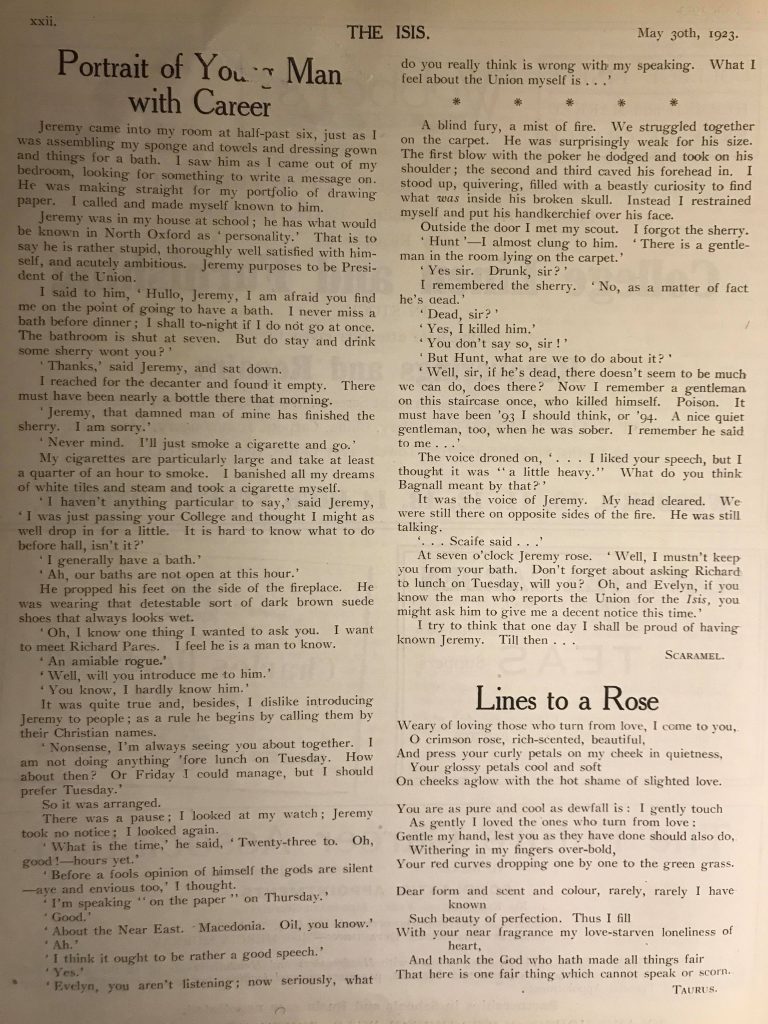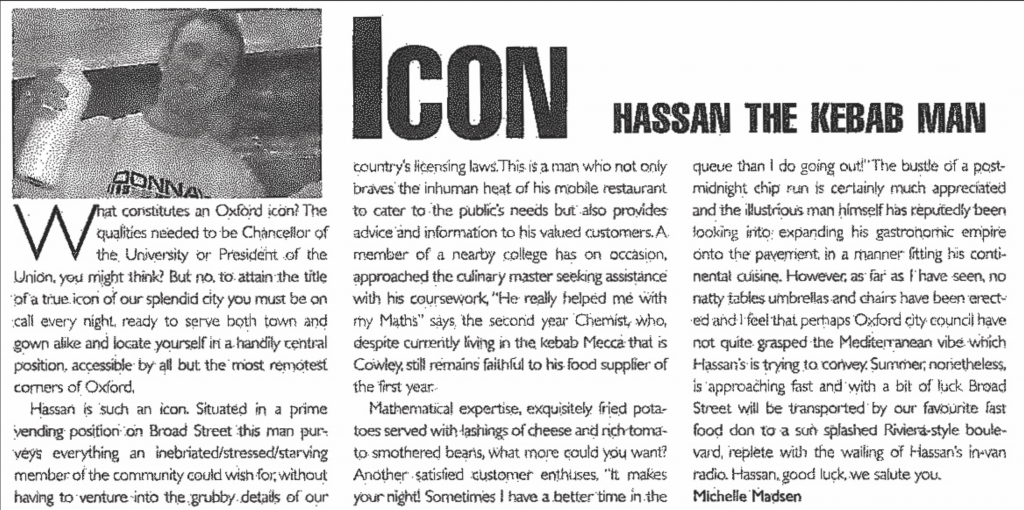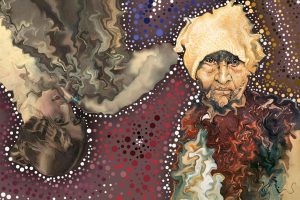Black history through the Isis archives
by Lina Osman | November 13, 2024

Stepping into the Oxford Union to find the Isis archives, I felt both excited and a bit wary. Stacks of student’s opinions, discussions, and commentary stretched before me, a huge tapestry of voices waiting to be explored. Somewhere within these pages, I hoped Black history was there too. But I couldn’t shake the irony: what if, instead of hidden gems, I uncovered the ghosts of old-school racism?
Starting with the 1960s, I quickly found a series of remarkable pieces that echoed the spirit of Black history in music, politics, and protests. These stories—vibrant, at times raw—were not only testaments to the powerful global conversations around race but also to the unique ways they had threaded through Oxford student culture. Among them was “Coltrane: Revolution and Restraint,” an exploration of John Coltrane’s music that felt as fierce and spiritual as the civil rights movement it paralleled. Coltrane, with his bold and boundary-pushing sound, was more than a musician; his work symbolized both the restlessness and hope of the era.
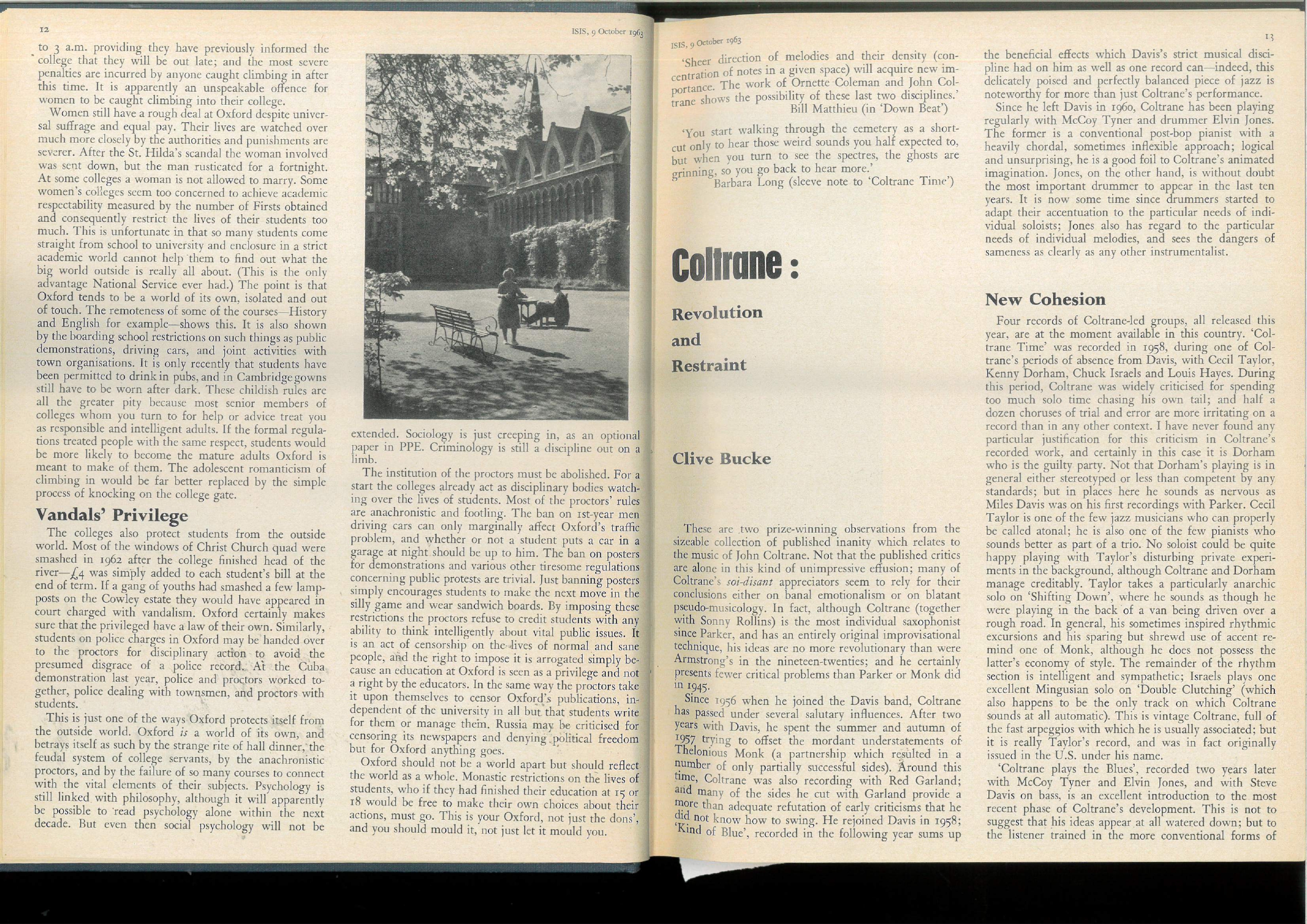
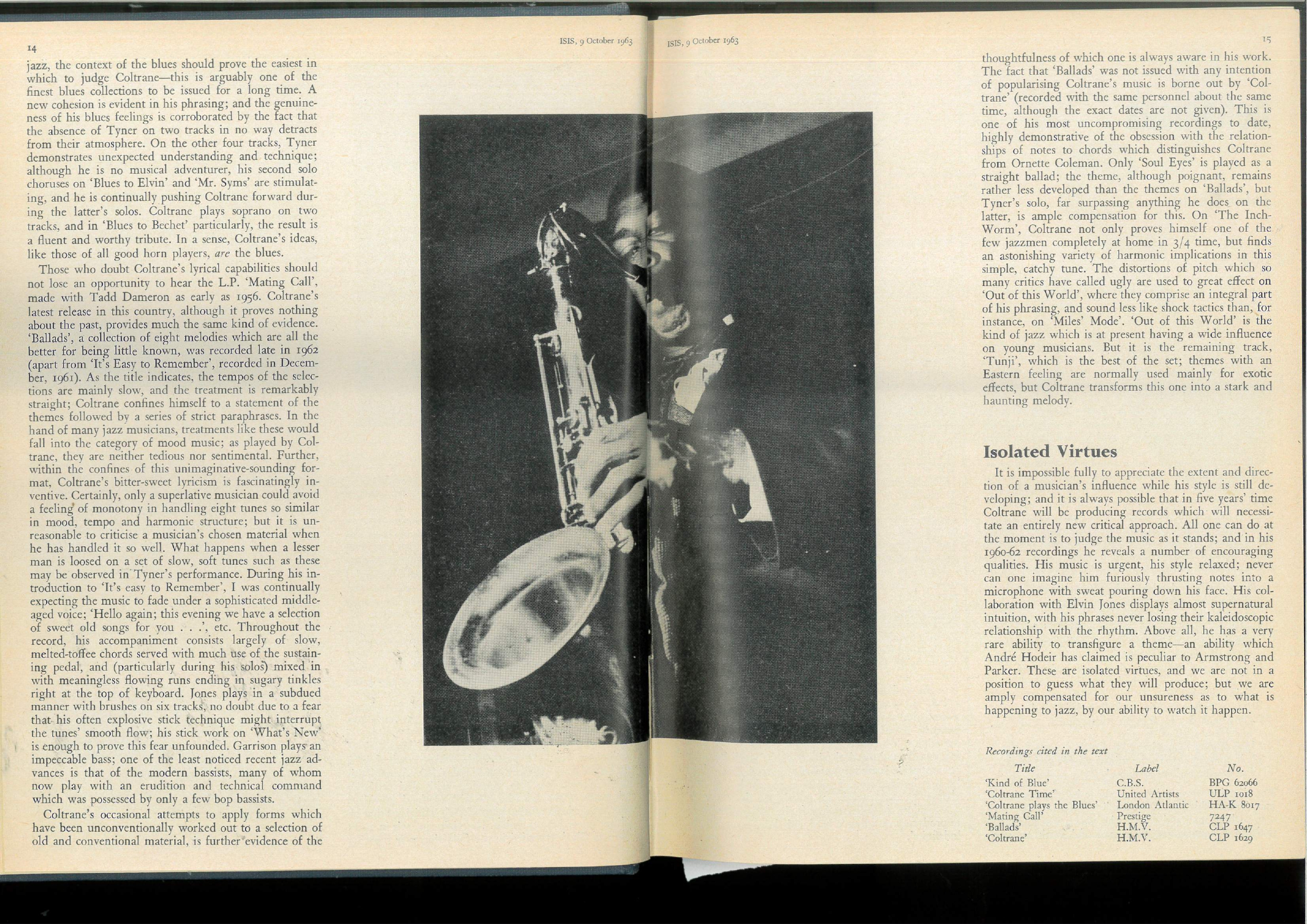
In 1963, the civil rights movement was at a historic peak in the United States, reverberating across the Atlantic and influencing Black communities in Britain as well. John Coltrane’s music was a revolution in itself—his sound was fierce, restless, spiritual, and uncontainable. Just months away from creating A Love Supreme, he infused jazz with both a cry for justice and a quiet, unyielding strength, capturing the essence of the time. In publishing “Coltrane: Revolution and Restraint”, The Isis was not just exploring jazz; it was responding to a wave of Black expression that spoke to a global hunger for liberation and belonging. Asserting that “his music is urgent”, this piece marks a moment when jazz was more than music: it was a bridge across oceans, a balm for wounds, and a radical act of community. A later 1963 edition contained a whole section on the Civil Rights Movement, including pieces titled ‘Civil Rights and Wrongs’ by Duncan Dallas and Douglas Gill and ‘The American Struggle’ by Frank Parker.
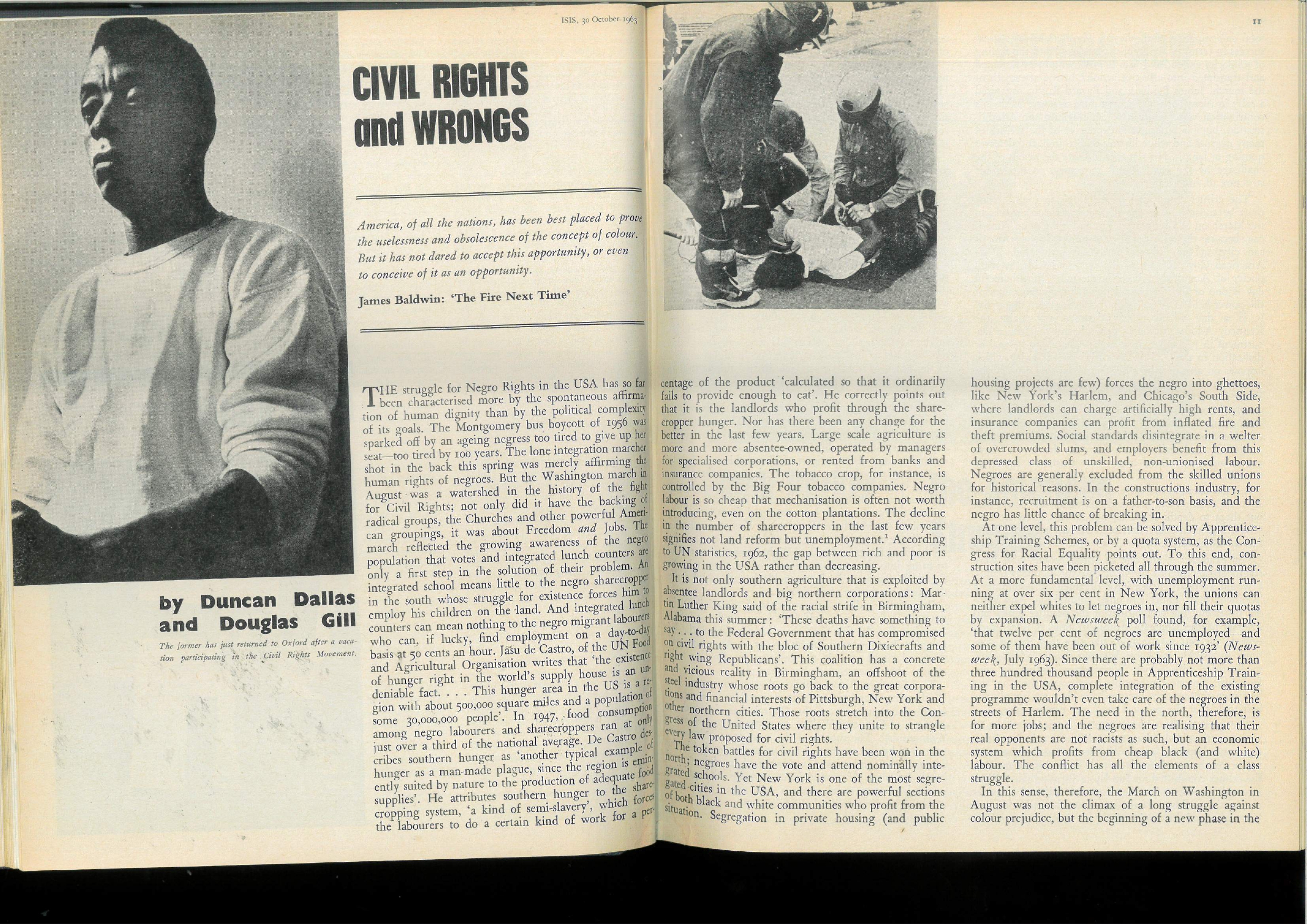
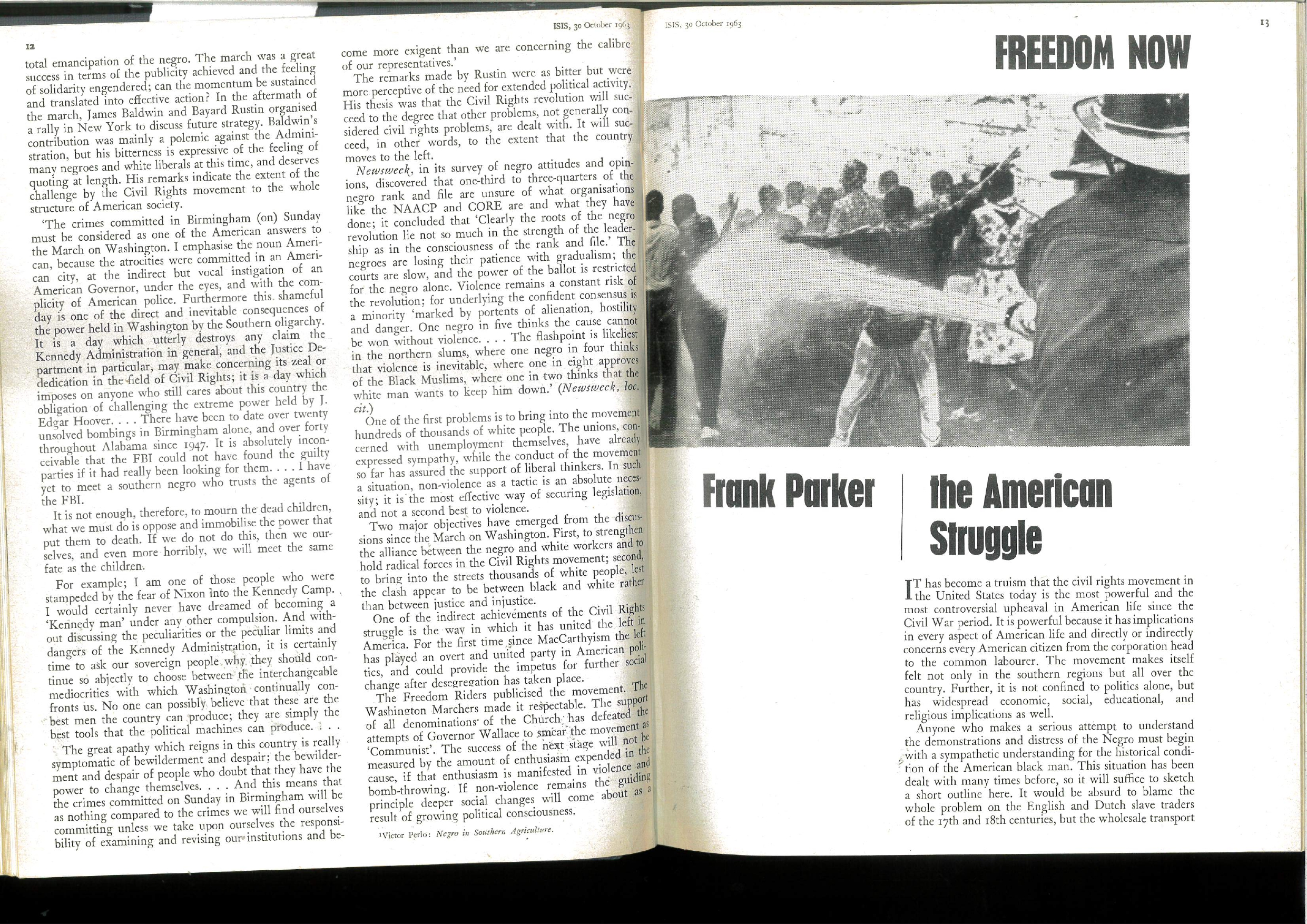
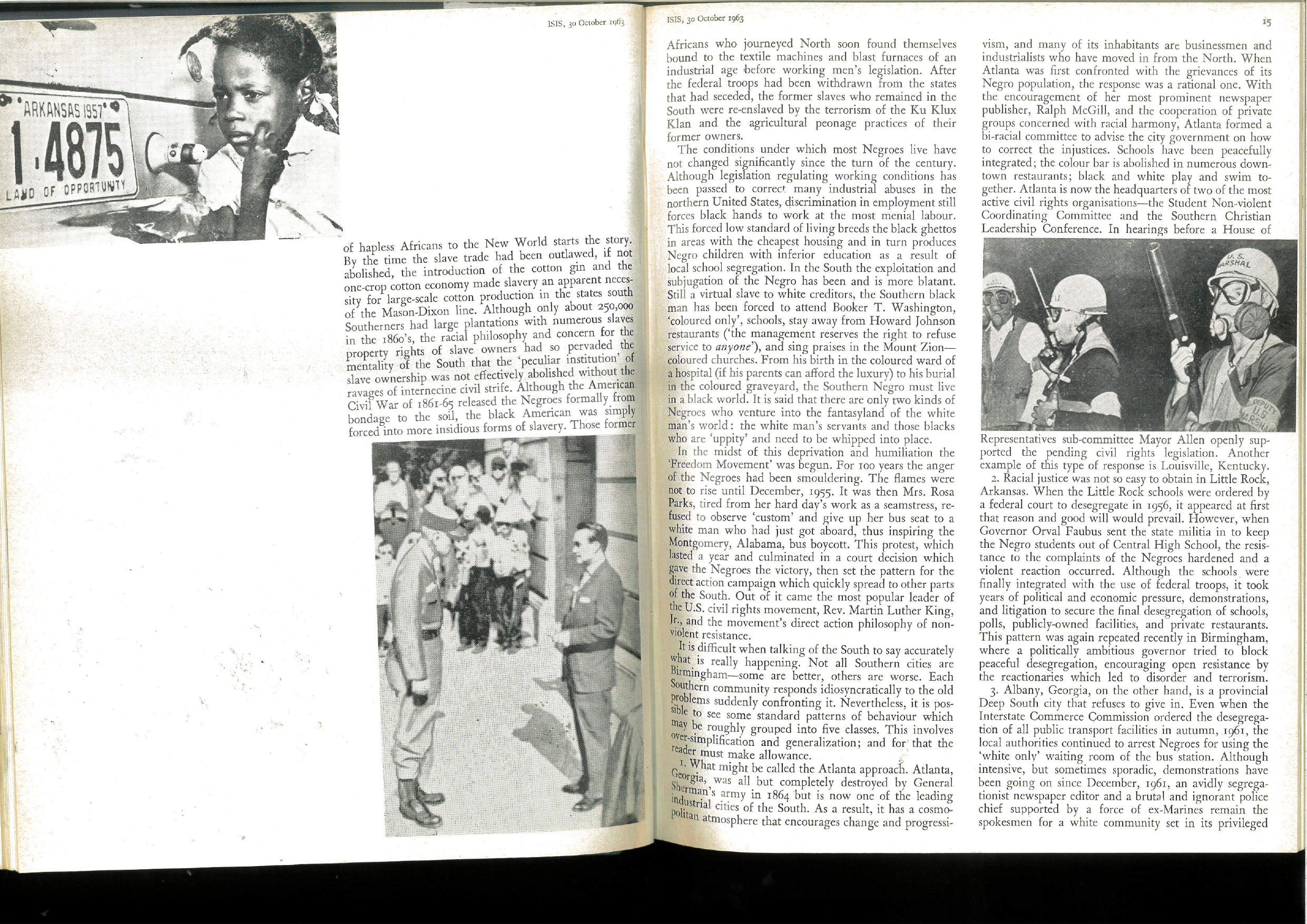
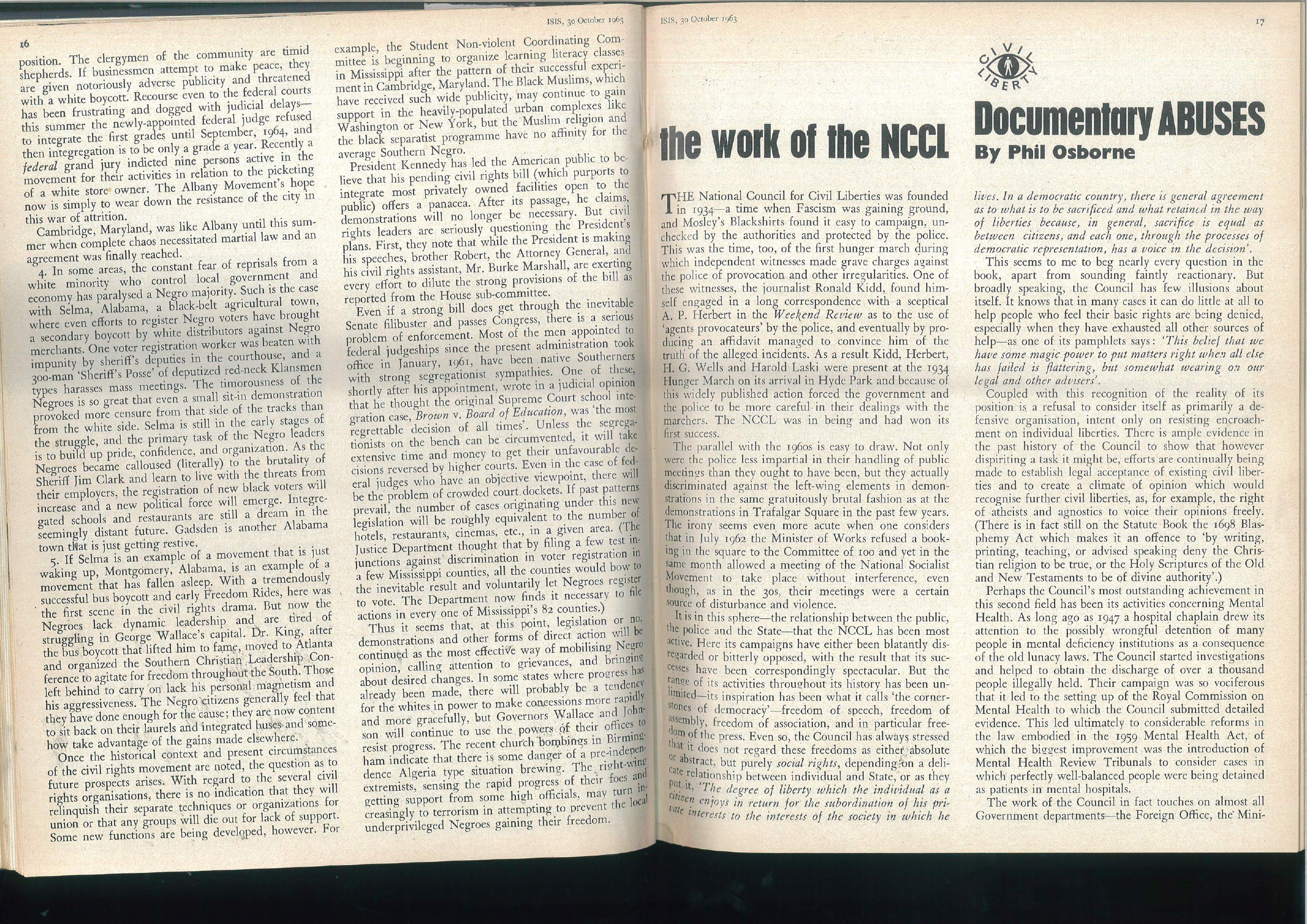
The edition also presents a piece titled “Blues Package,” by Peter Gillman and Roy Lockett, where a specific line stands out: “The blues have liberated all these men.” Blues legends like Muddy Waters and Howlin’ Wolf transformed sorrow into art, their music channeling centuries of struggle and survival. Isis’s coverage of blues in 1963 underscores its profound impact, showcasing the genre as a liberating force that carved out space for Black voices to be heard, honoured, and respected. Through these artists, and those before them, the blues became an anthem of liberation. Similarly, in “Brown-Eyed Handsome Man: Richard Condon on Chuck Berry,” Isis captures a snapshot of 1963 that buzzes with cultural revolution. Chuck Berry was more than a rock and roll icon; he was a force of nature, a brown-eyed Black man challenging the boundaries of a genre that, until then, was largely considered a white man’s world. Through lyrics that celebrated Black beauty and pride, Berry’s music defied stereotypes, and his guitar riffs transcended barriers, bringing Black expression into mainstream America and beyond. This article highlights how Berry’s influence was not merely musical; he personified a rebellious spirit that resonated deeply with those demanding freedom both in the United States and abroad.
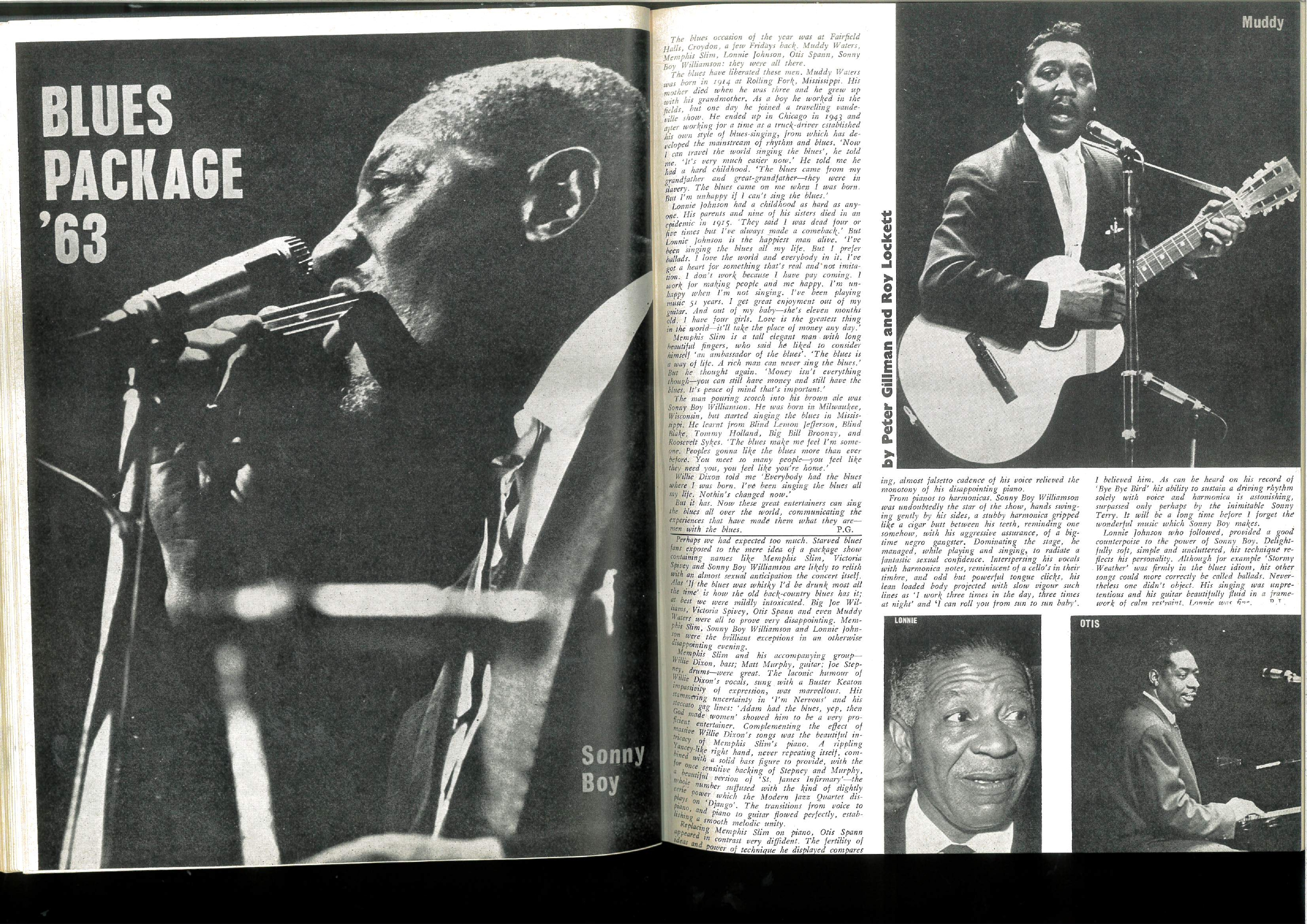
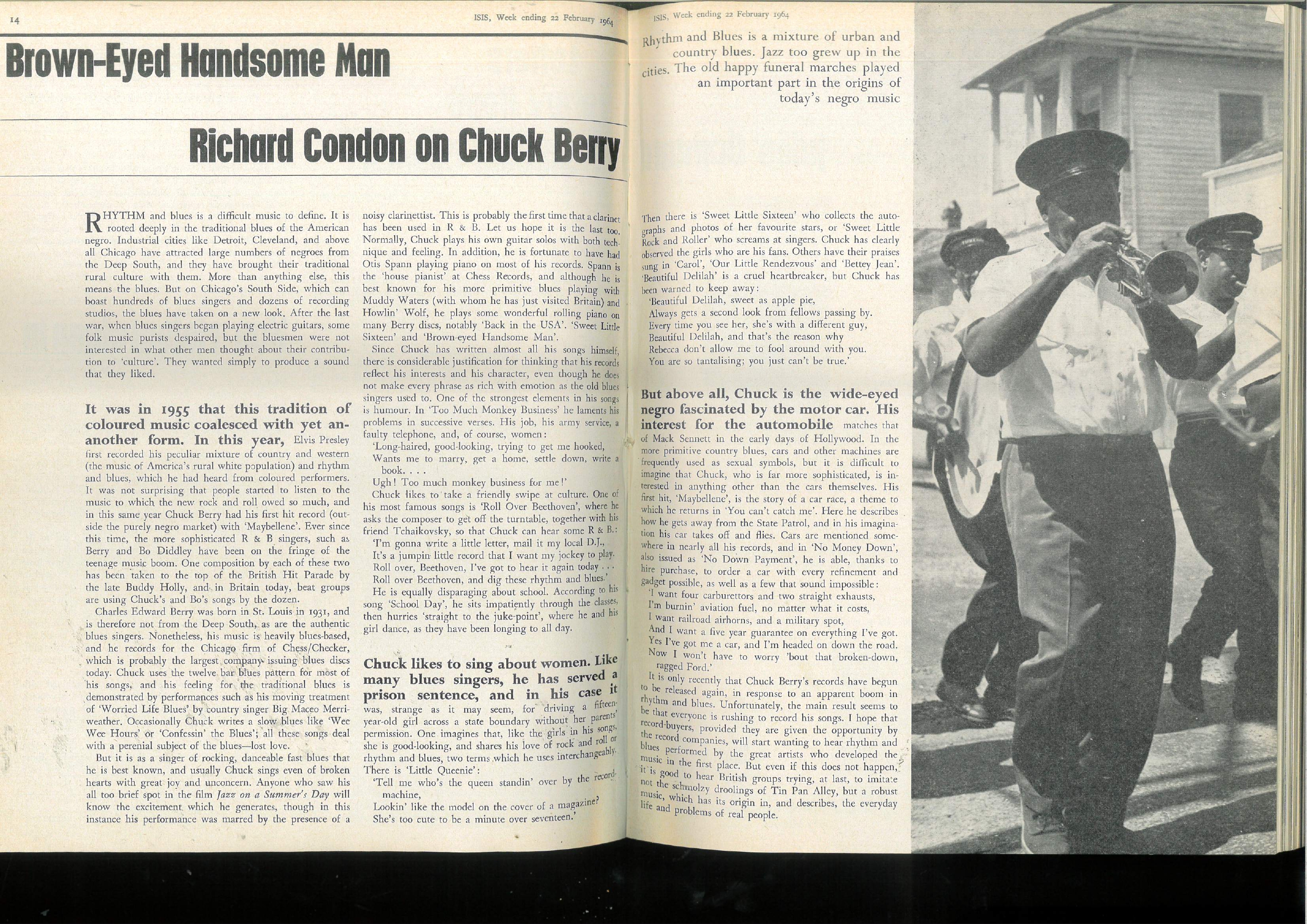
In the early 1960s, the political landscape in Britain was shifting dramatically. The Commonwealth Immigration Bill of 1962 sparked intense debate, as it aimed to restrict the influx of immigrants from former colonies, fundamentally altering the narrative of a post-war Britain that had once welcomed those from its colonies. In this context, the piece titled “We Don’t Speak the Same Language” by Malcolm Lee resonated with urgency, illuminating the chasm between the lived experiences of Black and White Britons. It captured the alienation felt by many as they confronted a political climate that sought to undermine their place in British society.
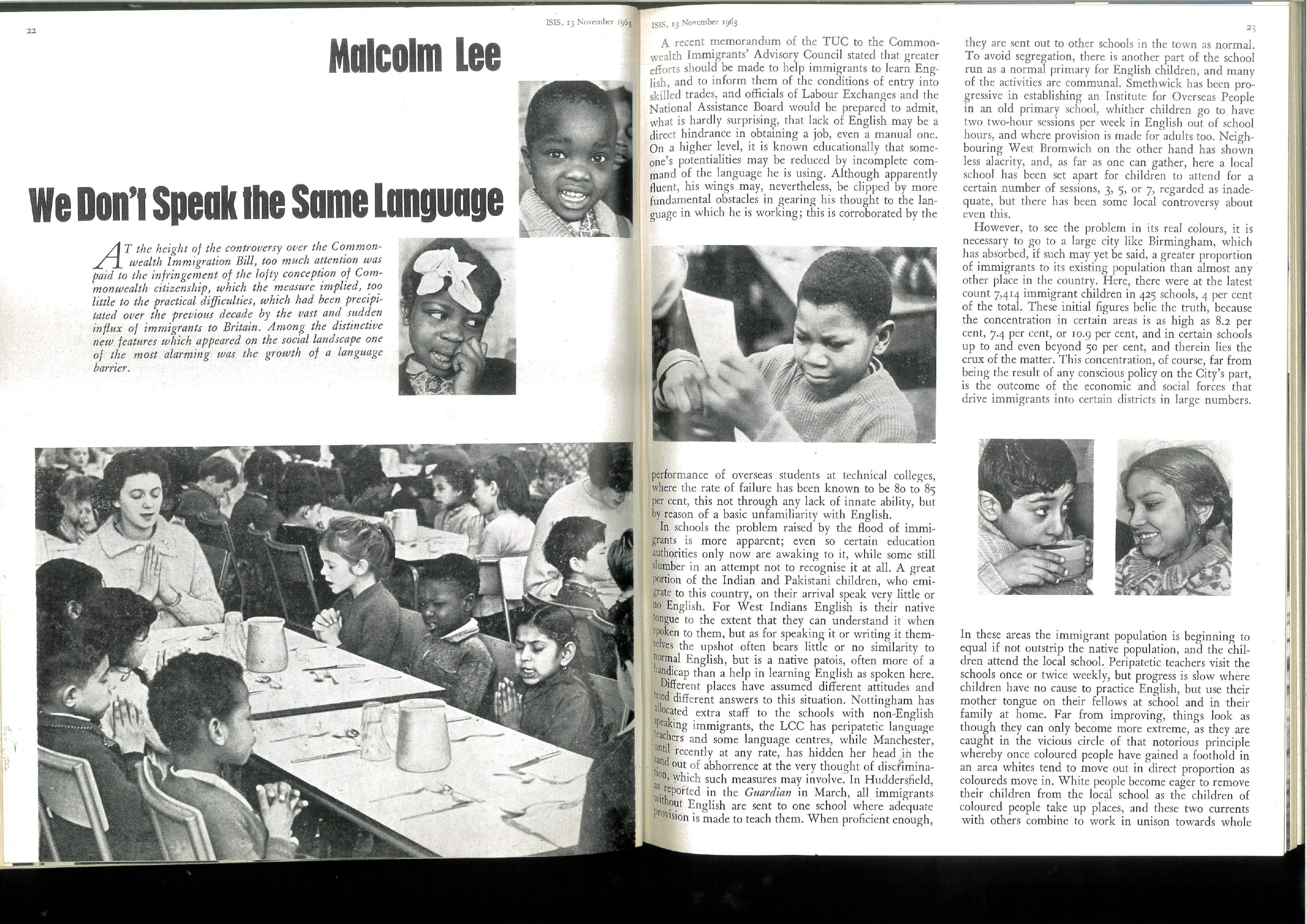
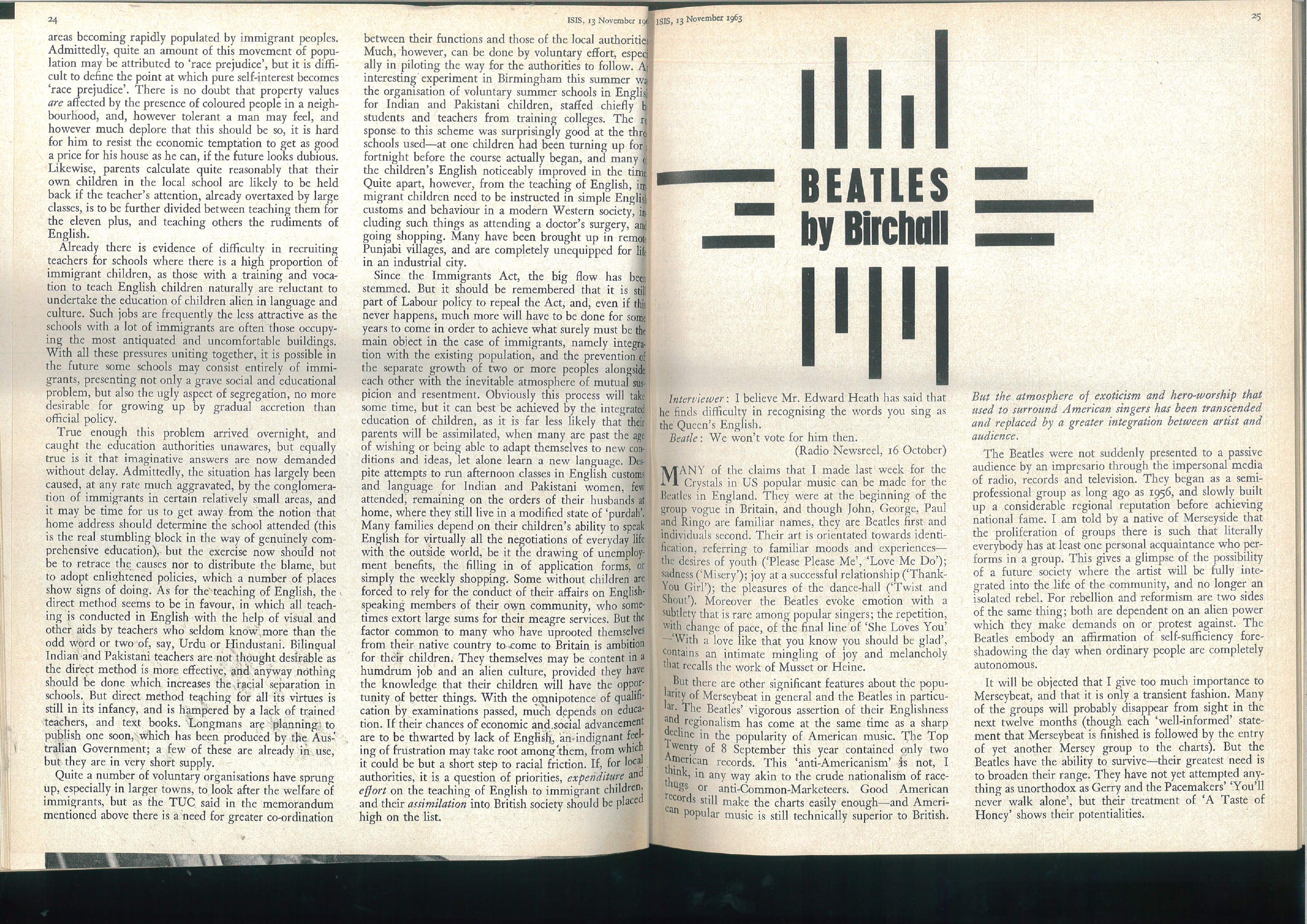
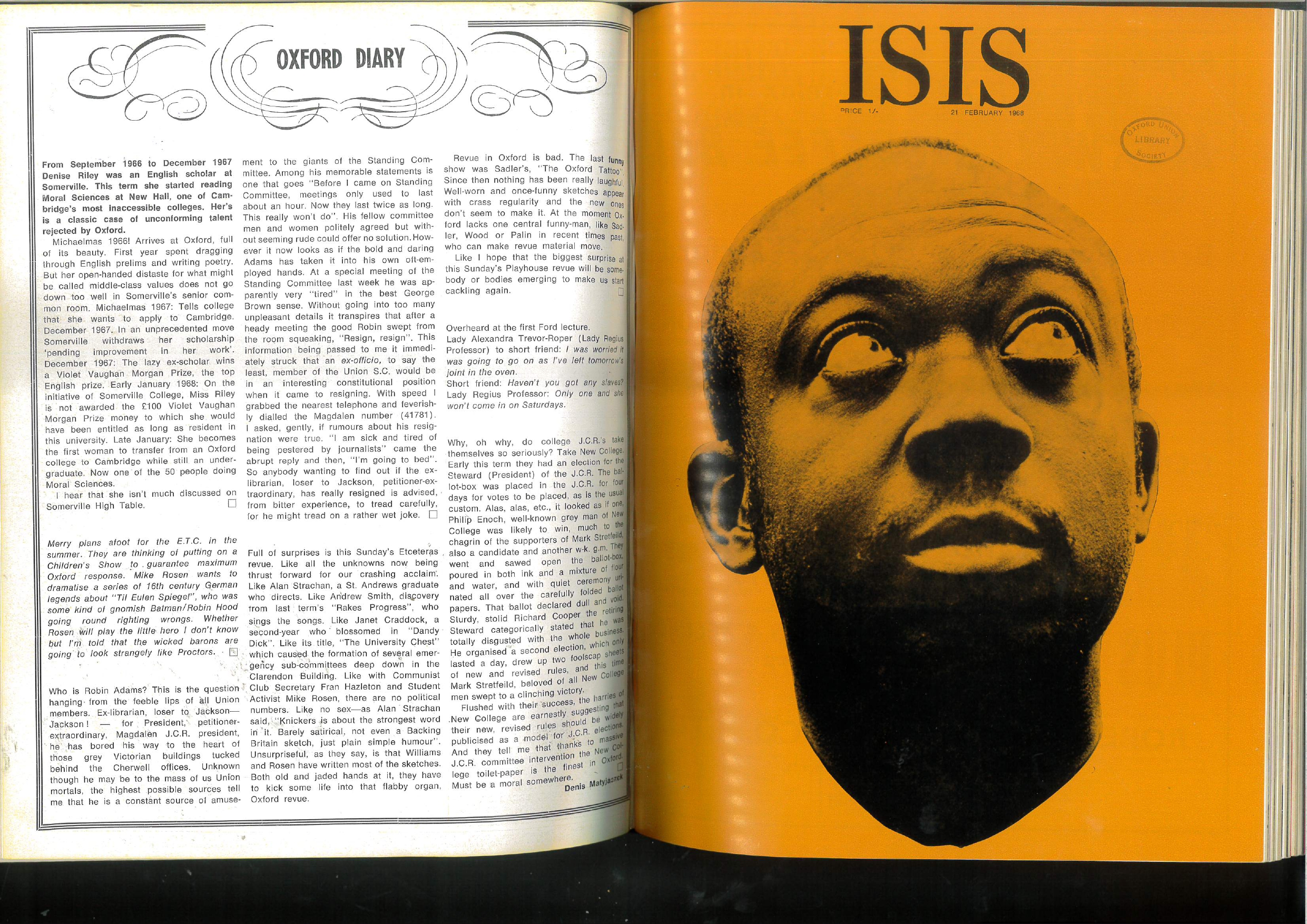
In 1968, the world was ablaze with a sense of urgency and possibility, heralded as the “Human Rights Year.” Yet a poignant piece in the Isis captures the paradox of a time when the rhetoric of human rights was rising, systemic injustices persisted, leaving many to wonder if the promises of equality and freedom would ever be realized. “Another Dreary Year” paints a vivid picture of frustration and disillusionment. This piece is not just a reflection of its time: it serves as a message of the ongoing struggles for justice: the rhetoric of human rights may be less foreign to us now, but the fight for human rights is far from over.
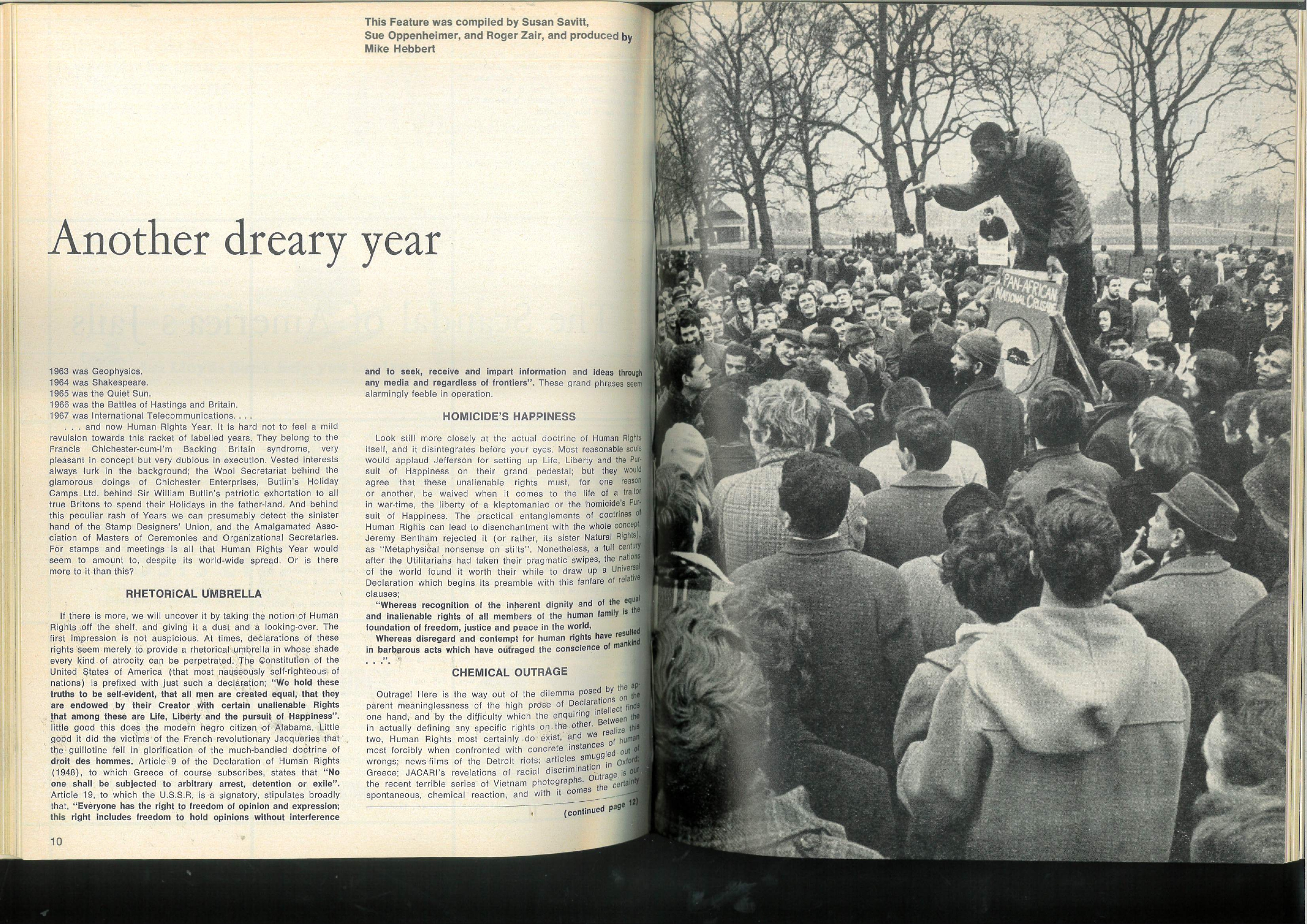
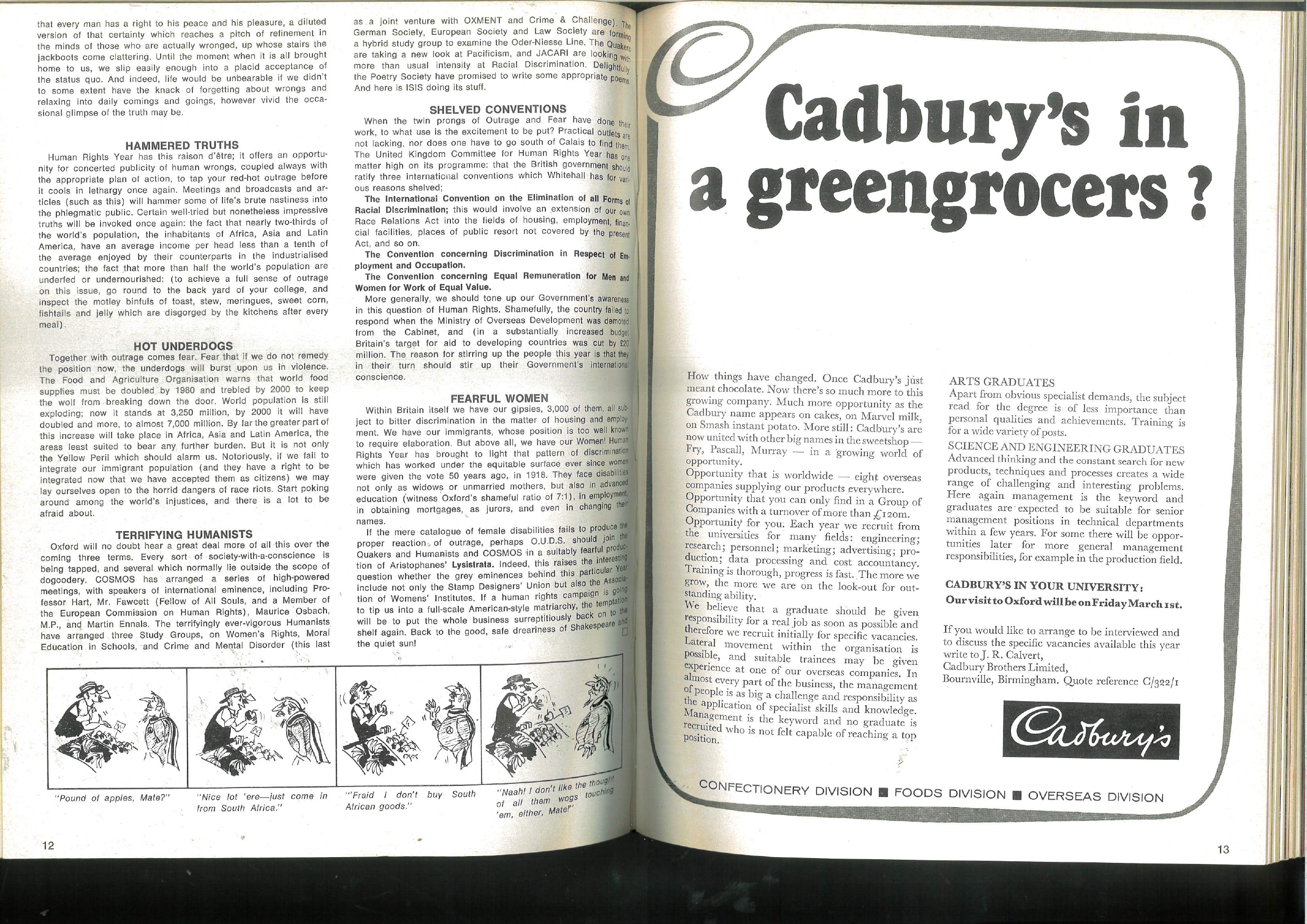
In 1968, the Isis published an opinion profile by Trevor Munroe. Trevor Munroe is now a prominent Jamaican academic and activist, best known for his role in founding the Workers Party of Jamaica, but he had already distinguished himself as a dynamic student leader during his university years, becoming a key figure in advocating for student empowerment and political activism. In 1968, amidst global uprisings and a generation’s call for change, Trevor Munroe’s profile on “Student Power” argued that revolution could—and should—begin within the university. Munroe’s words captured the electric sense that students could wield immense influence. His call to action reflected a radical shift: universities were not merely places of study but potential epicenters of political transformation. Munroe’s piece underscores the revolutionary spirit of 1968, when students believed in the possibility—and necessity—of harnessing their collective voice to drive change from within.
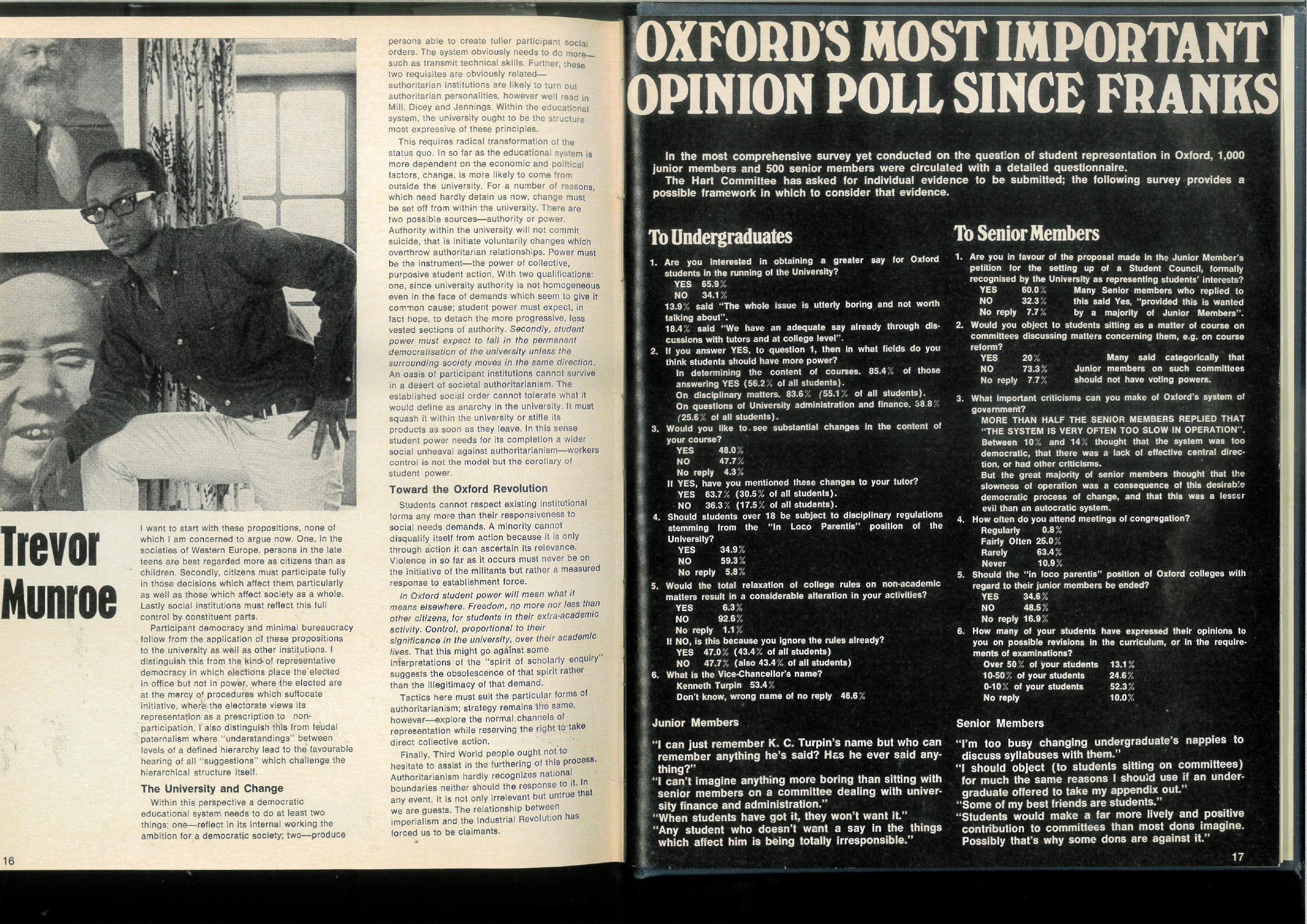
In 1981, “Dread Affair” captured a vital moment when London’s reggae scene had become a force, particularly in West Indian communities grappling with poverty, discrimination, and the racial tensions that bubbled over in events like the Brixton riots. Reggae, with its deep basslines and defiant lyrics was London’s heartbeat—a rallying cry for those reclaiming their narrative and confronting a society that too often pushed them to the margins. Isis’s coverage in “Dread Affair” illuminates reggae’s role in fostering resilience and pride. This piece stands as a testament to how music, born in Jamaica and raised in London’s streets, became a cornerstone of Black British identity.
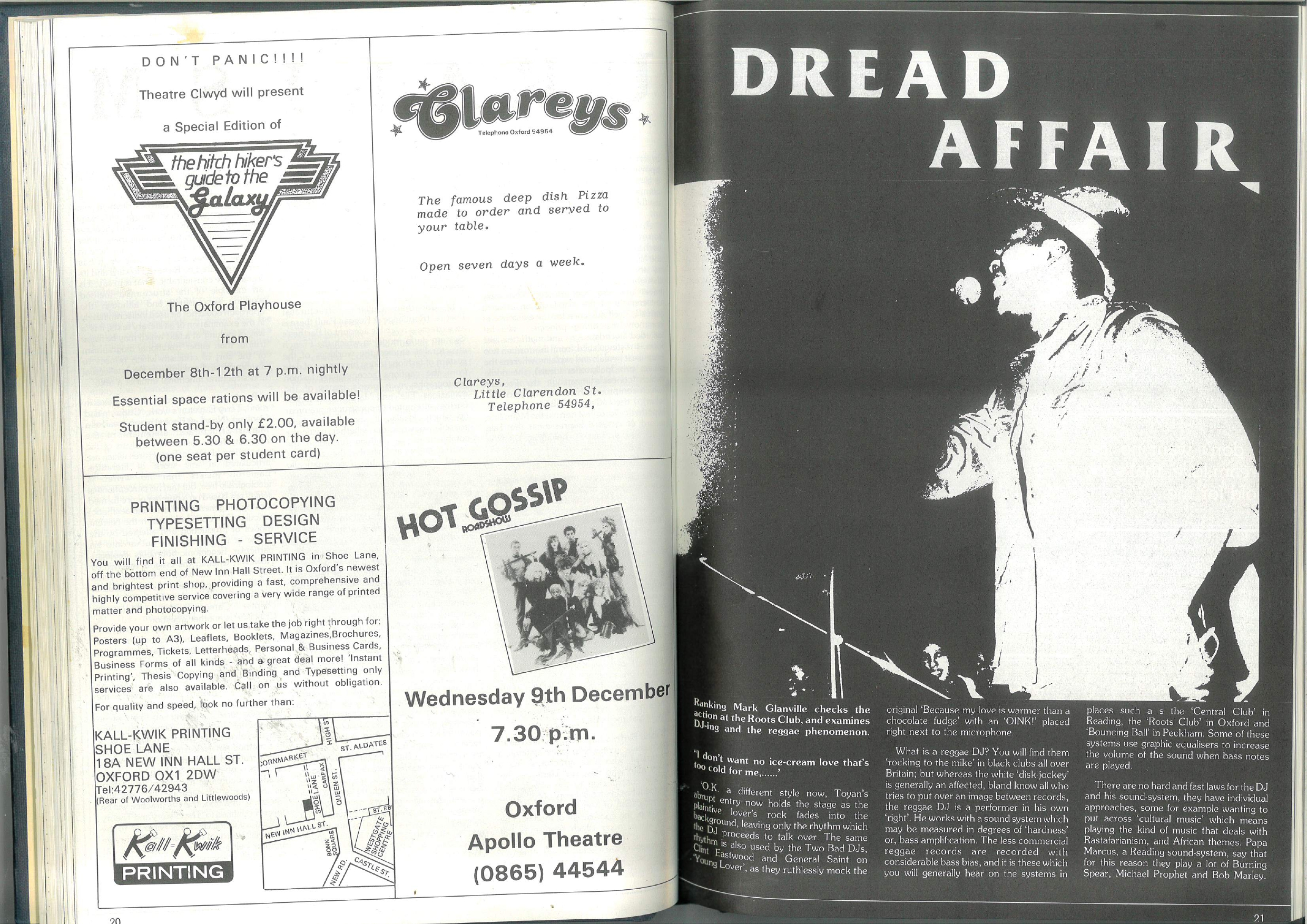
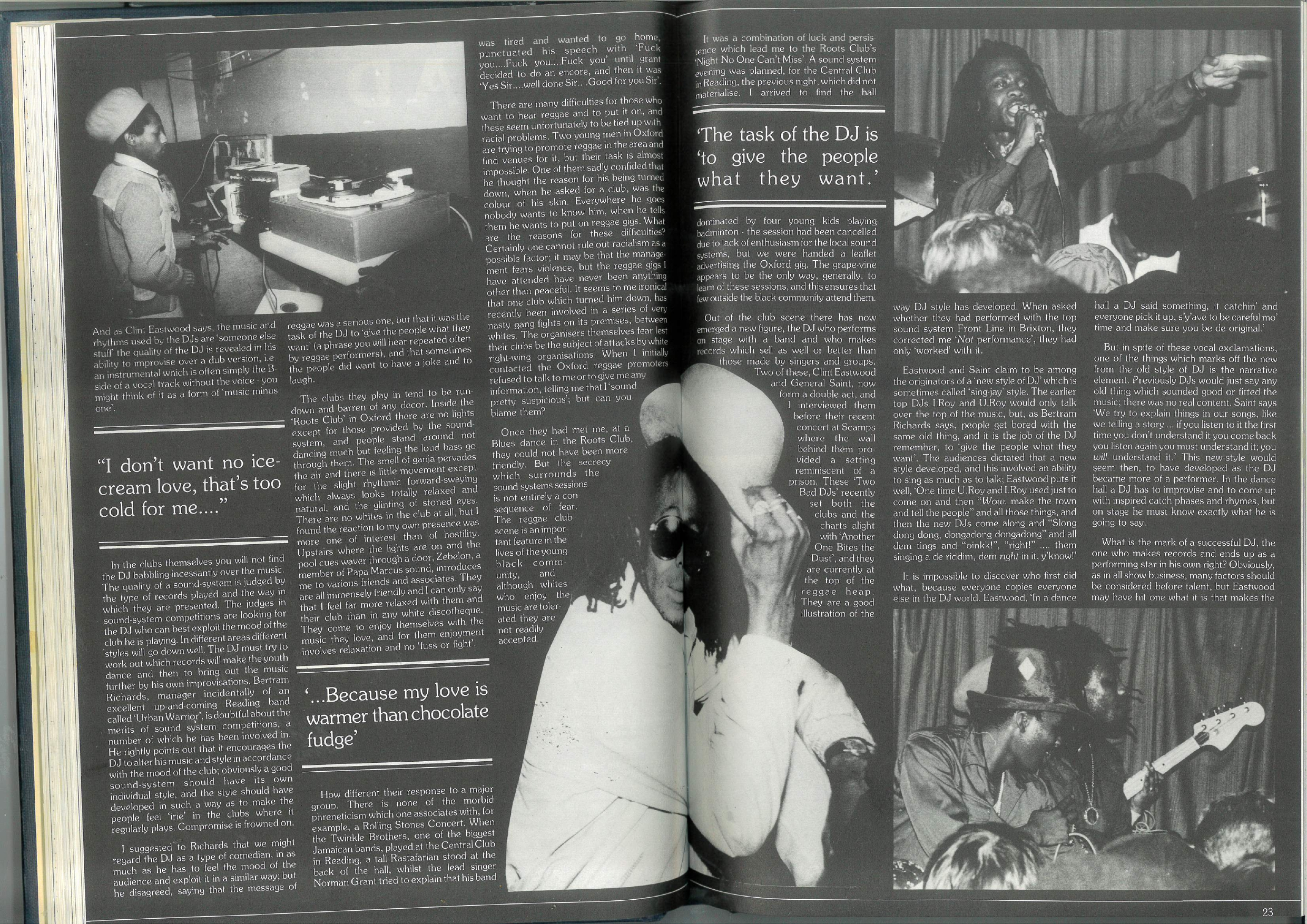
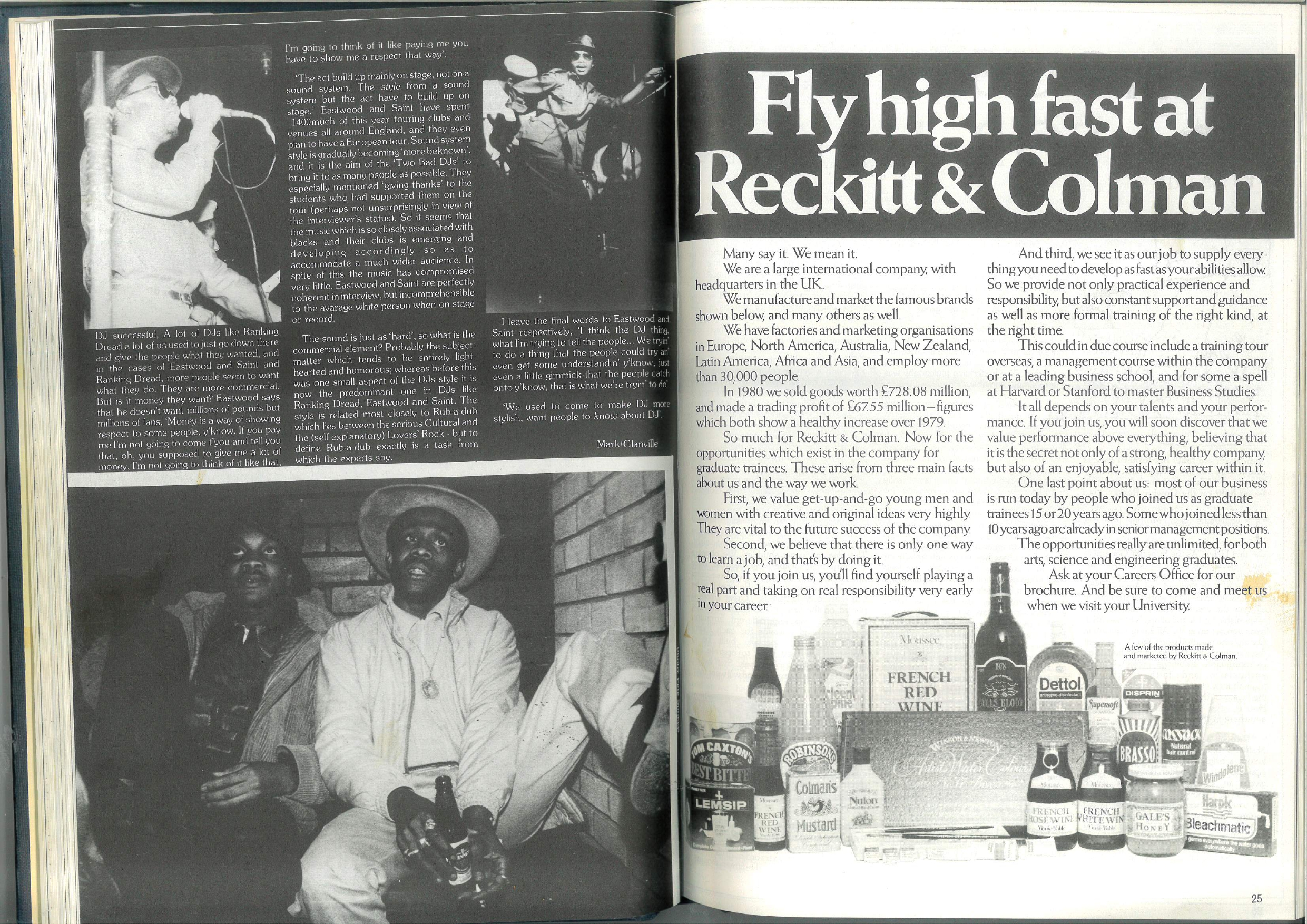
In 1982, Isis ran “Policing the Police,” a timely exploration of the Brixton riots that erupted just a year earlier. The riots were a flashpoint, ignited by years of unjust policing under “sus laws” that gave officers broad powers to stop and search young Black men, leading to daily harassment and simmering tensions. In April 1981, Brixton’s streets became a battleground, with residents clashing against a system that had marginalized them for far too long. “Policing the Police” delves into this volatile moment, examining how the uprising was not mindless chaos, but a desperate call for justice, for recognition, and for a country to confront its racist underpinnings. Through this lens, the Brixton riots are framed not merely as an act of defiance, but as a watershed moment in Black British history, pushing the country to reckon with the urgency of reform and the demand for dignity that could no longer be ignored.
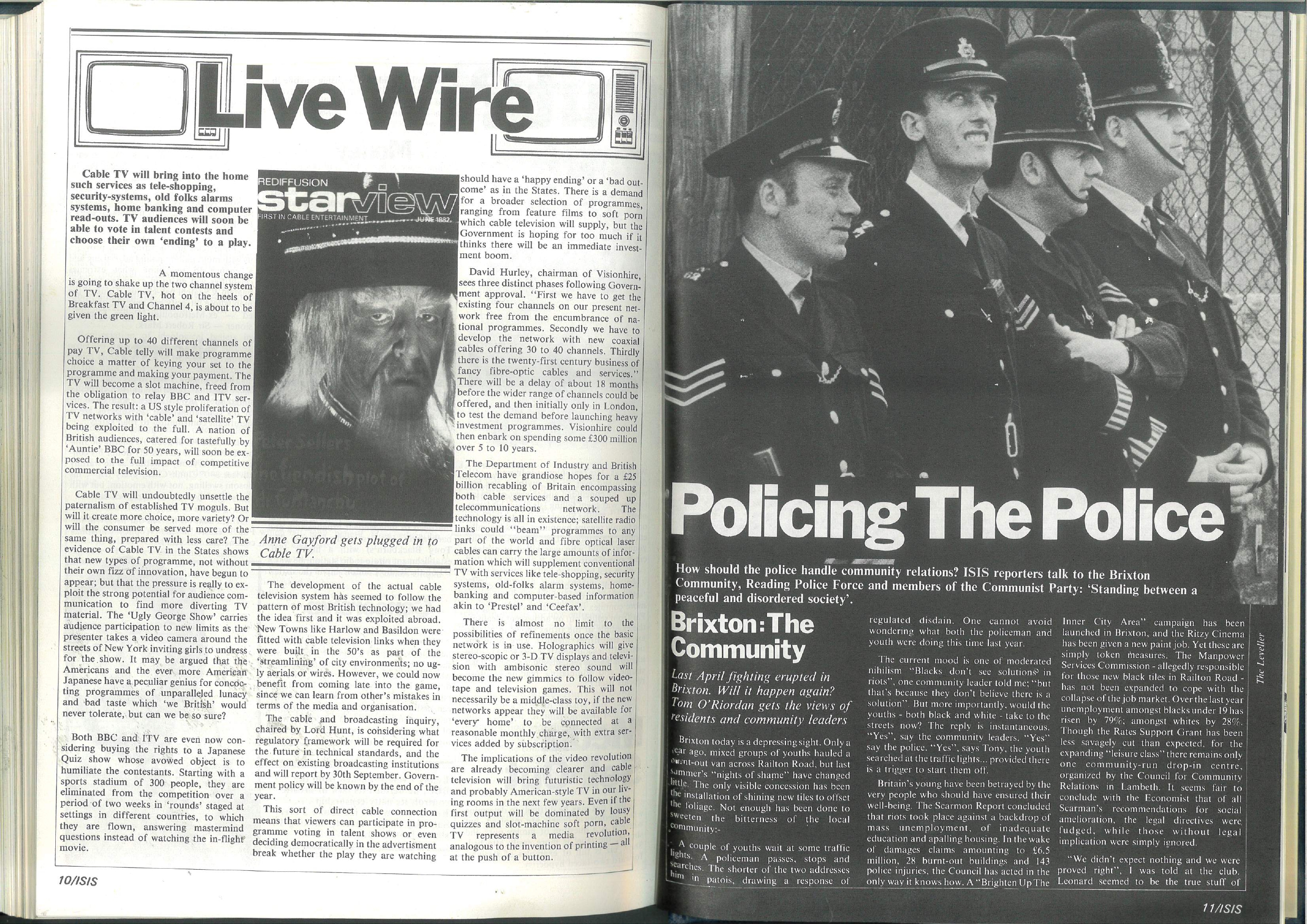
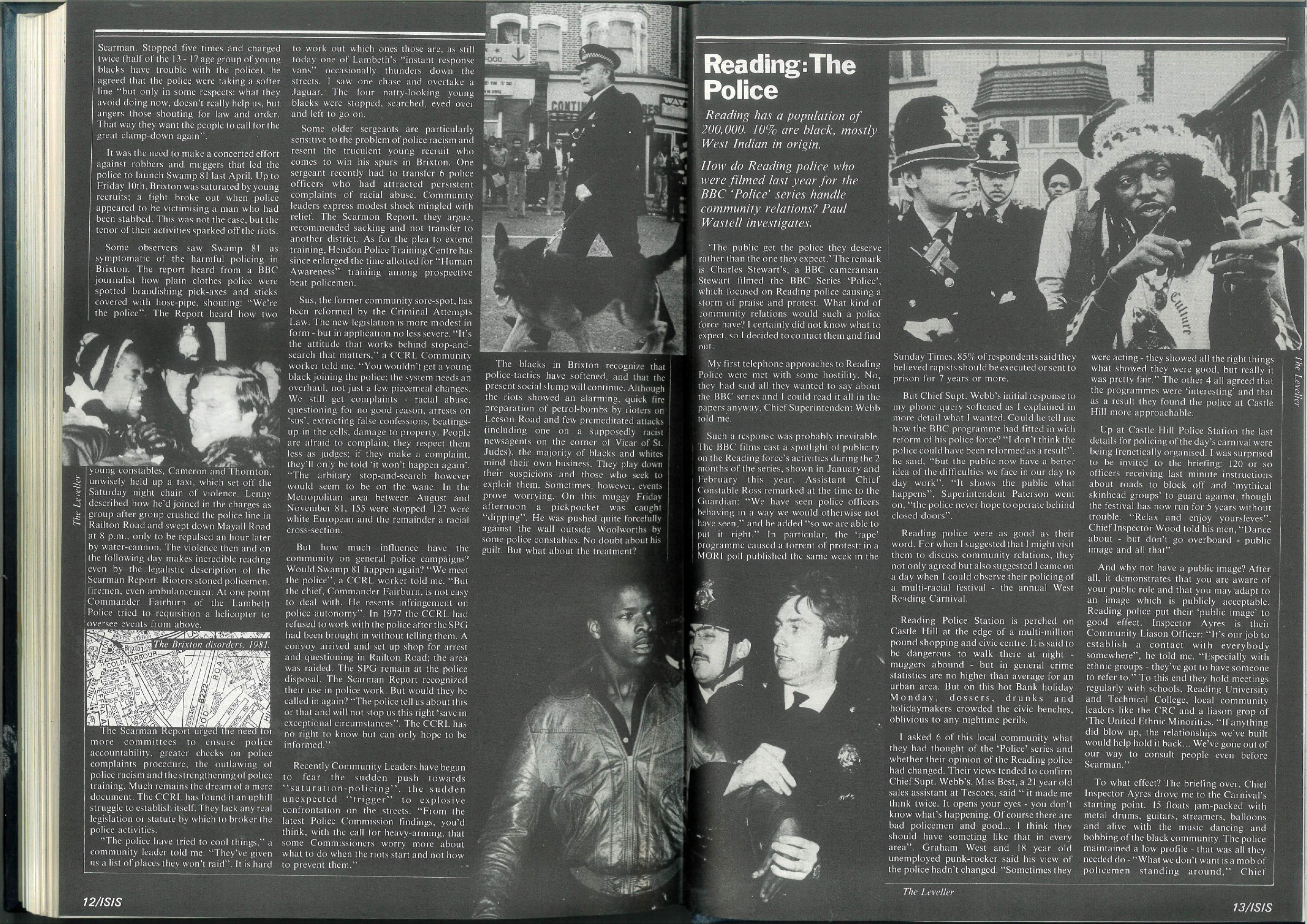
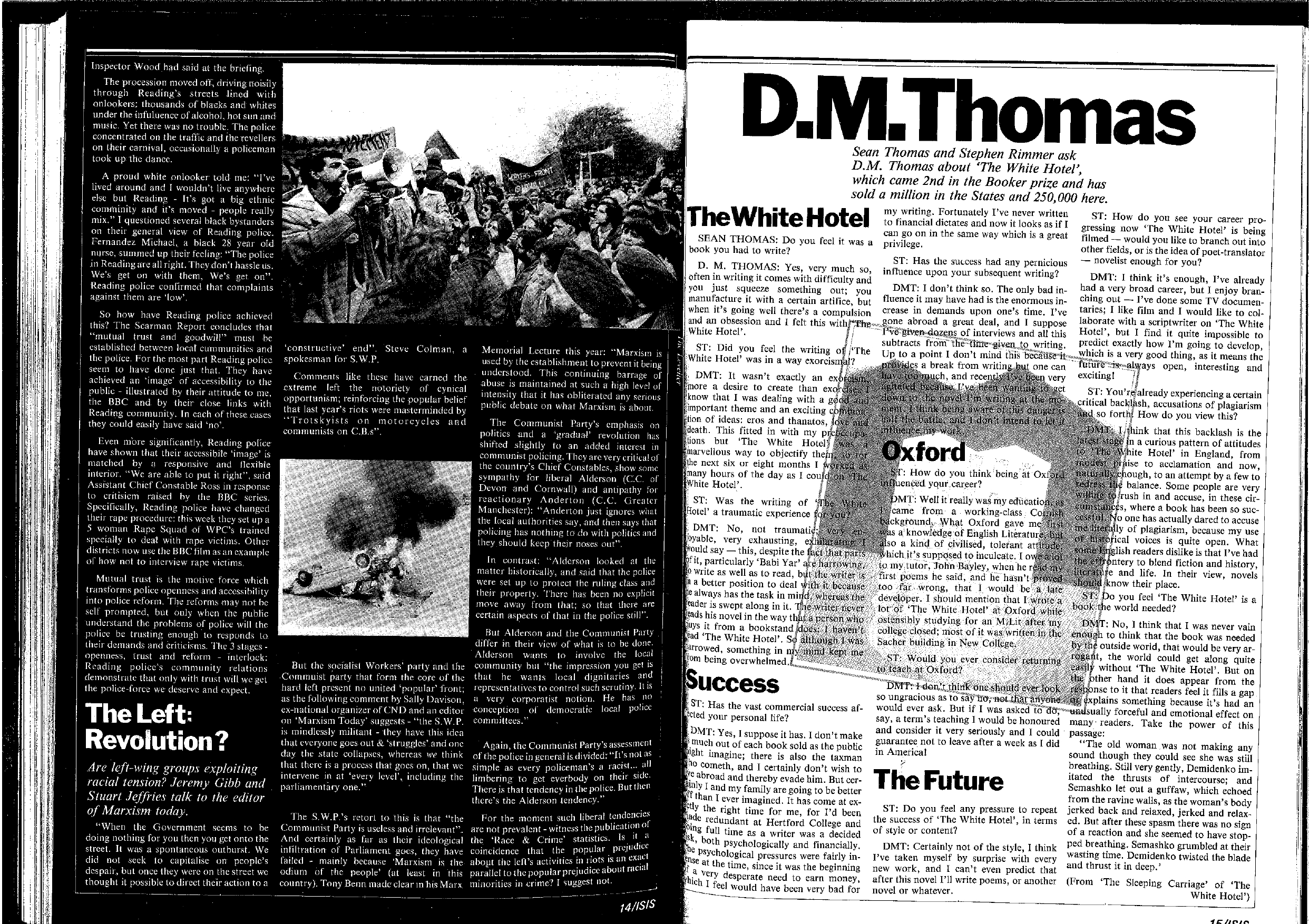
In 1990, Isis ran “Dizzy Gillespie, World Citizen,” a tribute to the legendary trumpeter and jazz icon. Gillespie, known for his pioneering role in bebop and Afro-Cuban jazz, was a global ambassador for jazz and a symbol of cultural diplomacy. His music was a fusion of Black American jazz with Afro-Latin rhythms, embodying a unique synthesis that celebrated the African diaspora’s interconnectedness. By the time of this piece, Gillespie had long been an international figure, having used his music to connect with audiences across Europe, Africa, and Latin America. In a time of shifting geopolitical tensions and rising cross-cultural awareness, Isis’s tribute underscored Gillespie’s role as a “world citizen,” an artist whose work celebrated diversity and unity. His artistry and openness to global sounds helped bring jazz to new audiences worldwide, cementing his legacy as a powerful cultural bridge between Black America and the world.
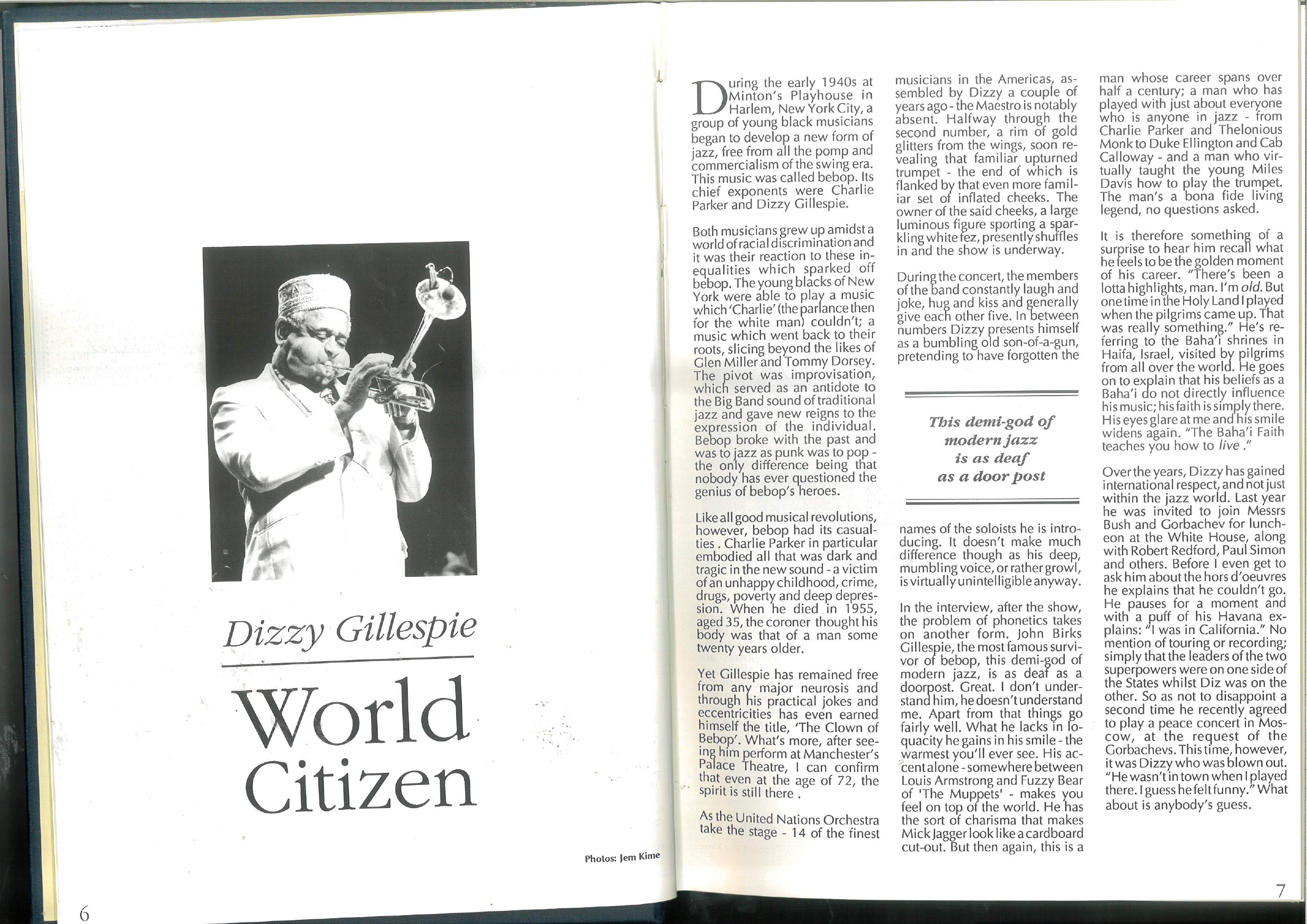
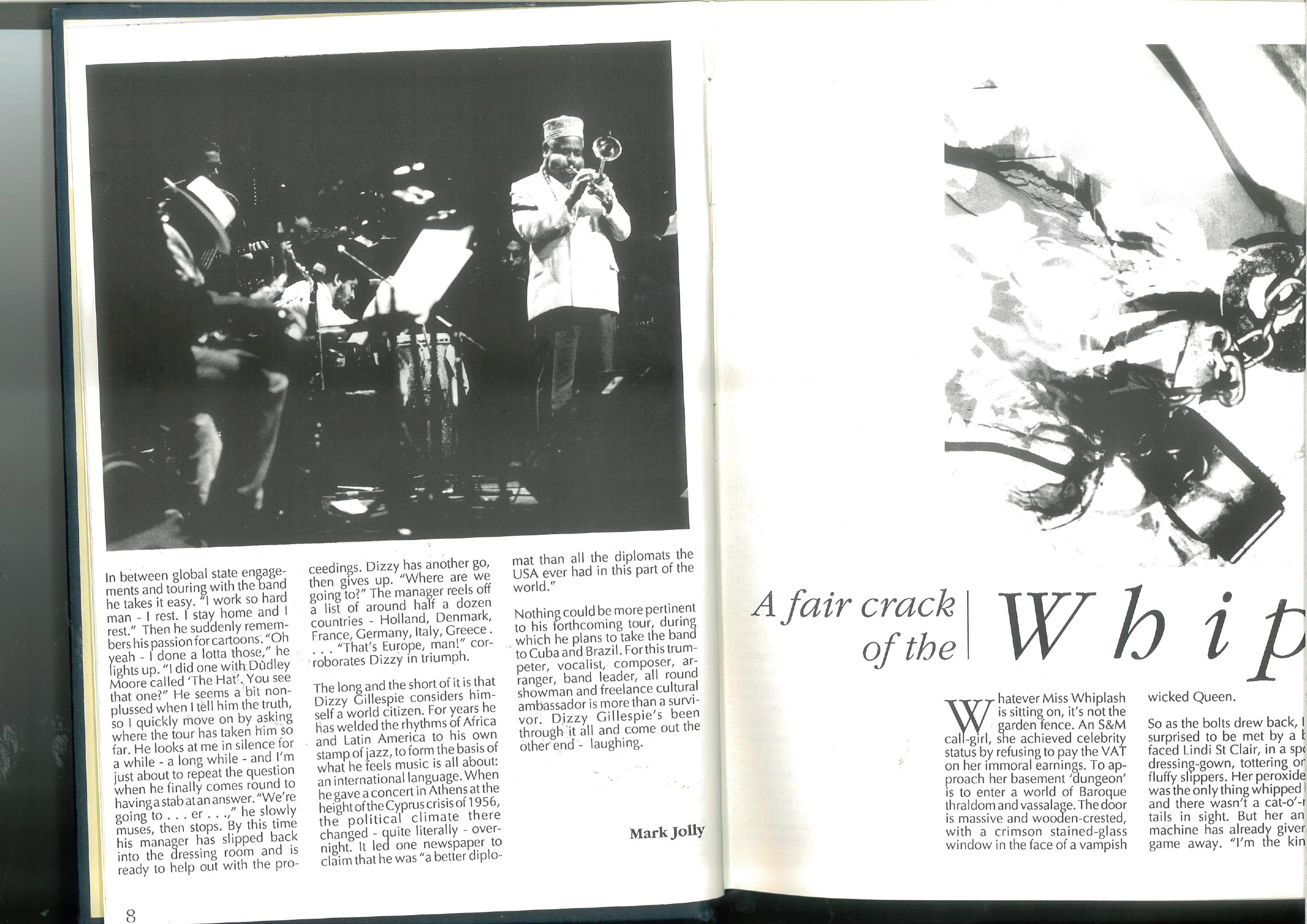
In 1991, Isis featured a piece on the rise of dub poetry, a genre that blended poetry with reggae rhythms and the spoken word.. Emerging from the Caribbean in the 1970s and gaining traction in Britain, dub poetry gave voice to Black British and Caribbean experiences, tackling issues of racial injustice, identity, and social inequality with a fierce, unapologetic energy. Figures like Linton Kwesi Johnson and Benjamin Zephaniah were at the centre, using their rhythmic verses bring the struggles of the Black diaspora to the forefront of British consciousness. By 1991, dub poetry had become a cornerstone of British Black culture, its powerful words and beats asserting a radical voice in both the literary and political spheres.
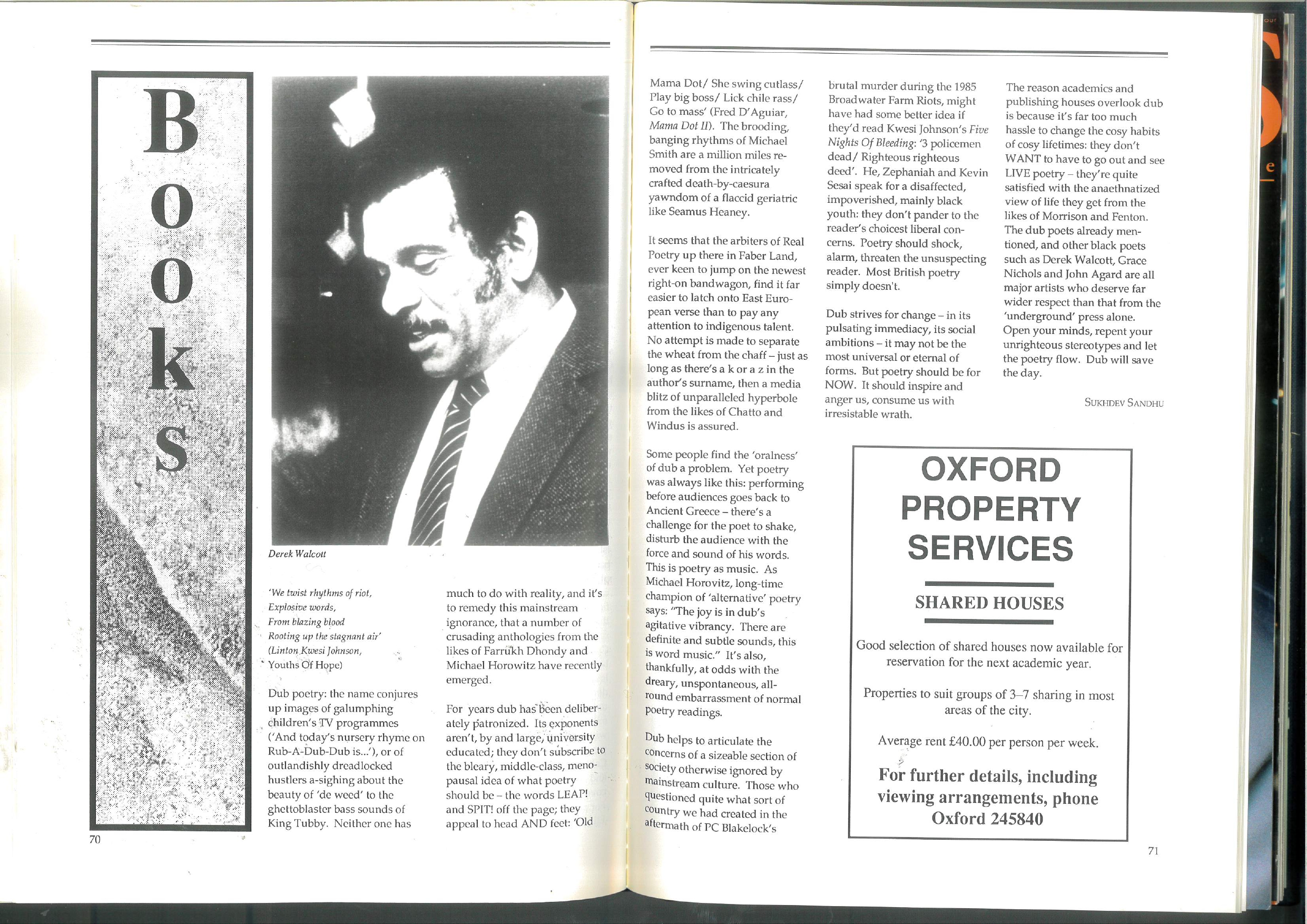
In 1996, Isis interviewed Paul Blackman, a central figure at Black Pyramid Films, a groundbreaking British production company dedicated to amplifying Black voices and stories on screen. Founded in Bristol in the 1980s, Black Pyramid Films was committed to countering the lack of diverse representation in British media, particularly focusing on stories that resonated with the Black British experience. Blackman was instrumental in shaping the company’s vision—producing films and documentaries that tackled social issues like racial inequality, identity, and the complexities of life for Black communities in Britain. By the mid-90s, Black Pyramid had garnered recognition for its unapologetic approach to storytelling. Blackman’s work with Black Pyramid marked a vital moment in British film, one where independent cinema became a force for social commentary, cementing the legacy of Black British filmmakers as trailblazers in redefining media.
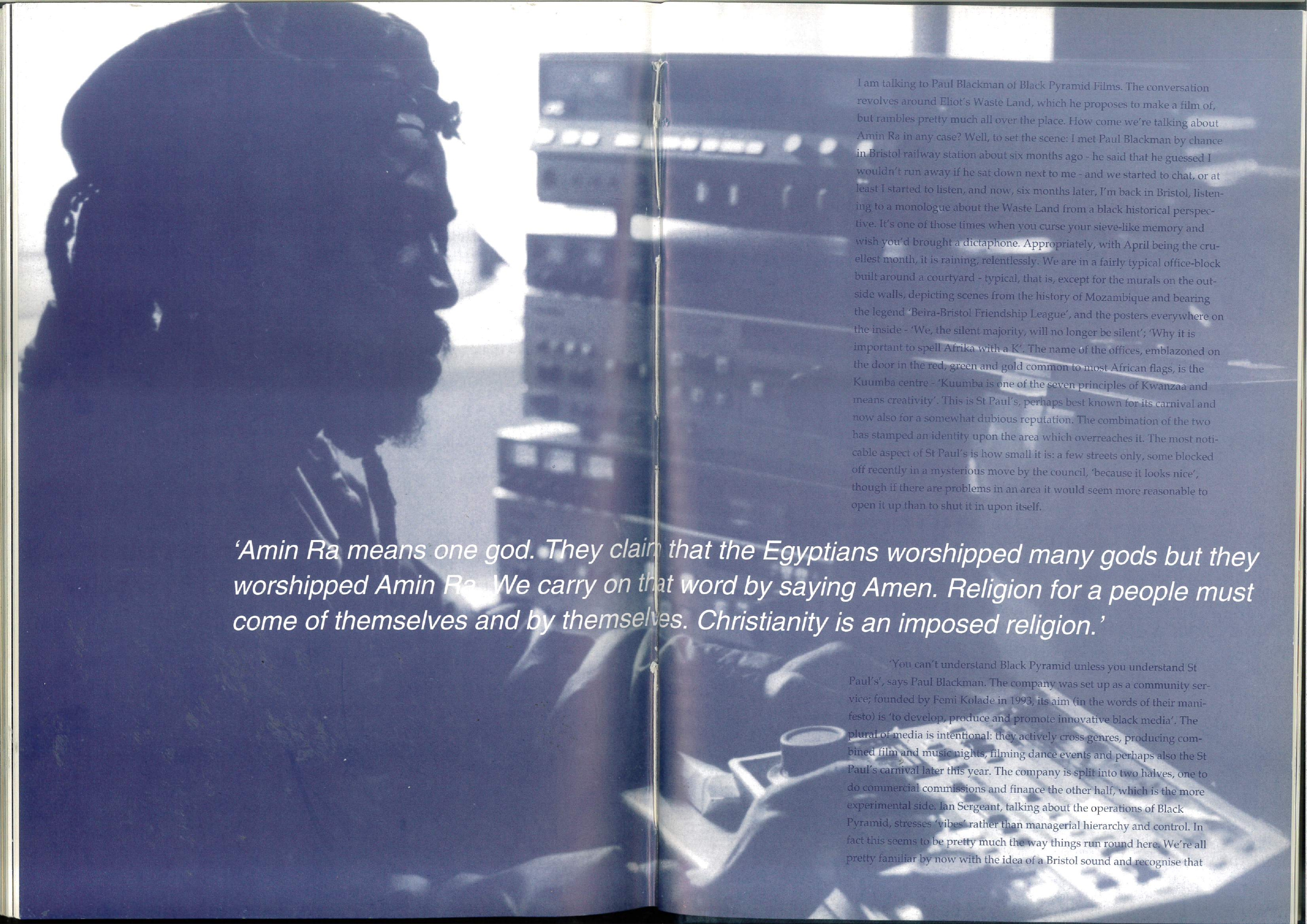
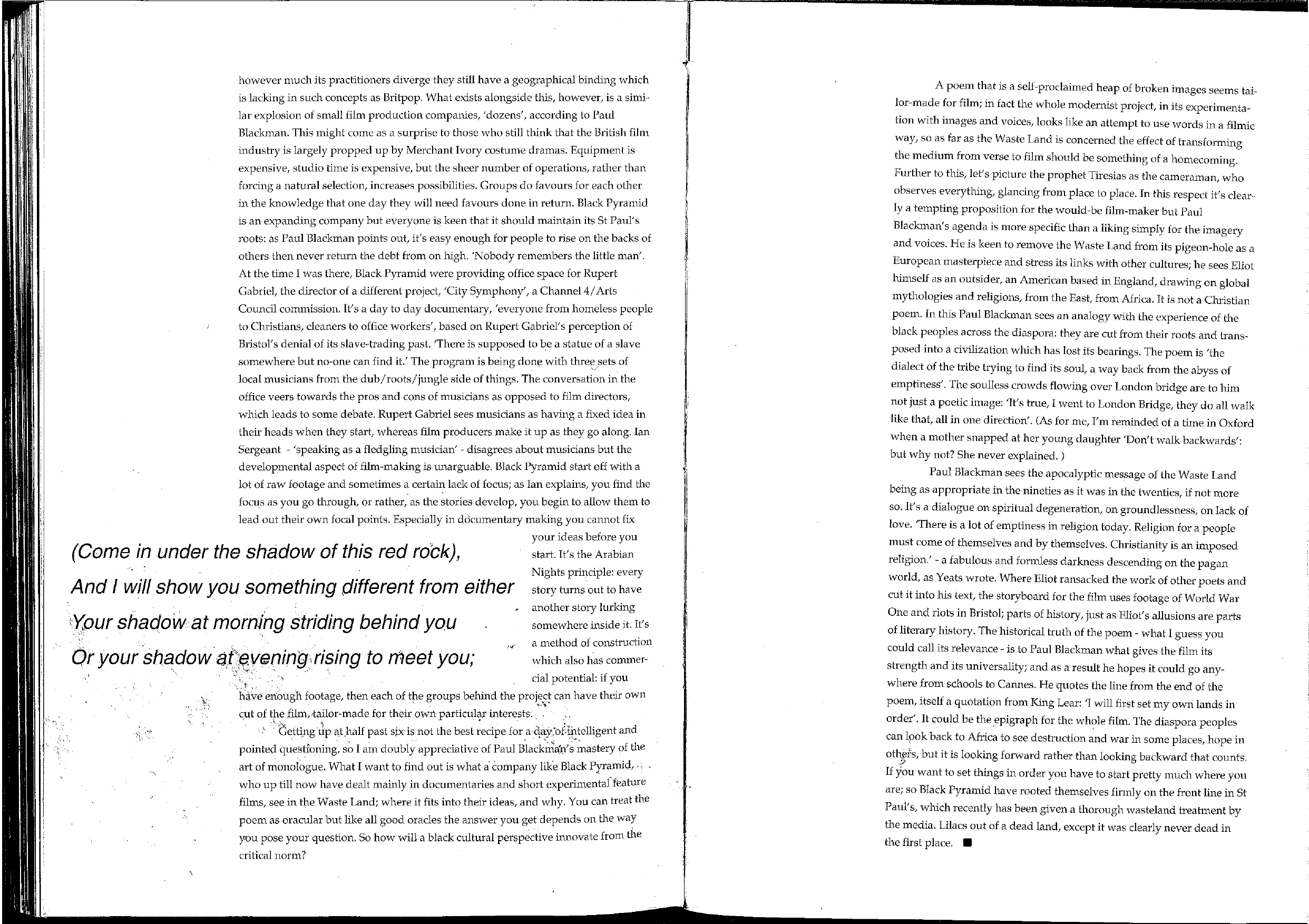
In 2011, Isis published “Legality and Morality are Not Friends,” a piece exploring the story of three Black Panther Party members—Robert Hillary King, Albert Woodfox, and Herman Wallace—who became known as the “Angola Three” after being wrongfully convicted in 1972 for the murder of a prison guard in Louisiana’s notorious Angola Prison. For nearly three decades, these men endured solitary confinement, a punishment inflicted on them as retribution for their activism and vocal stance against systemic racism within the prison system. In the interview, Robert Hillary King—the only one of the Angola Three to be released by 2001—speaks powerfully to the resilience required to survive such conditions and his relentless fight for justice. King’s words reflect a deep understanding of the moral cost exacted by a legal system built to uphold the status quo rather than justice. The piece resonates as both a historical account and a searing critique of how legality is wielded to suppress revolutionary Black voices, underscoring the Black Panther Party’s ongoing impact in exposing racial and moral inequities within the American justice system.
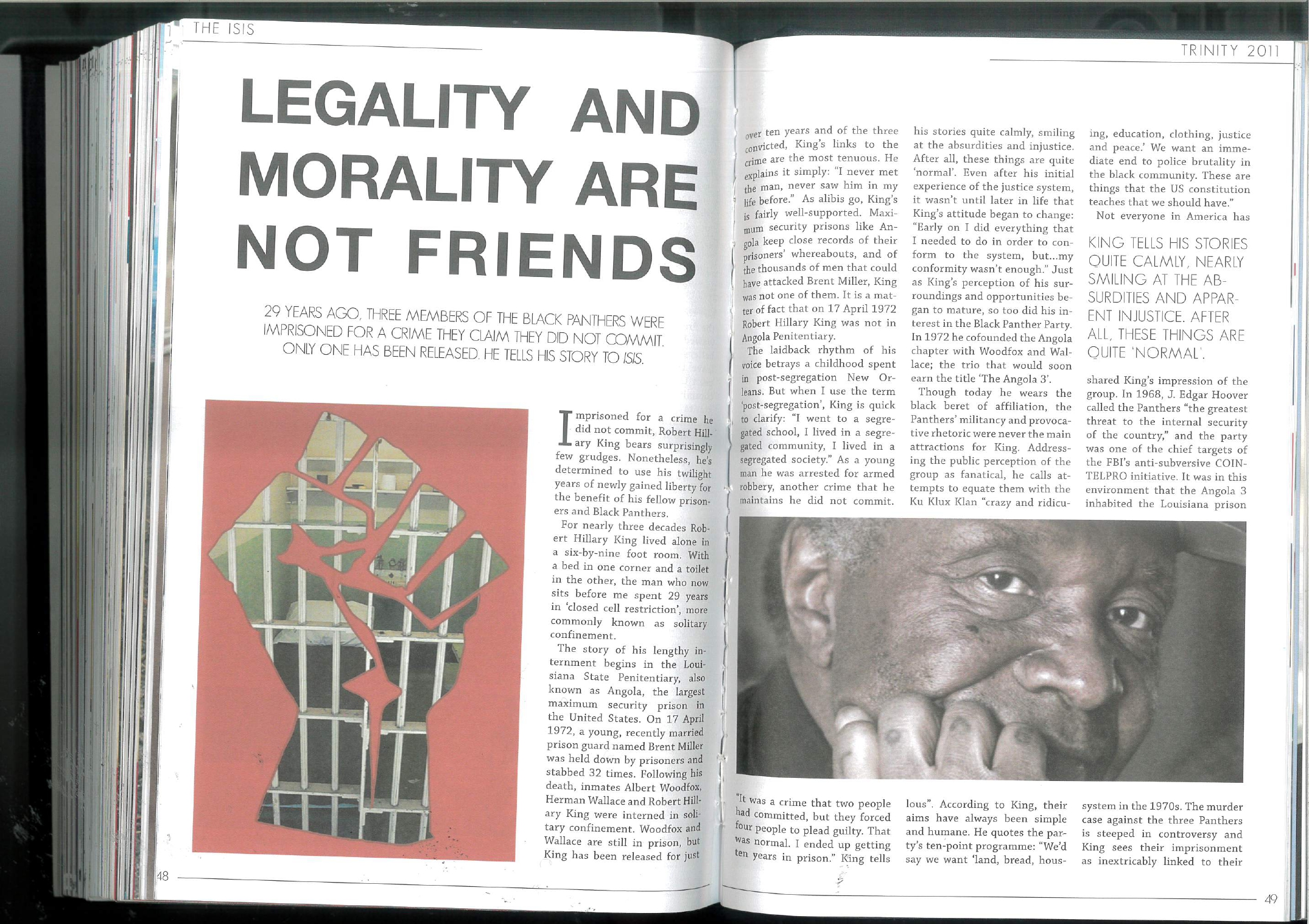
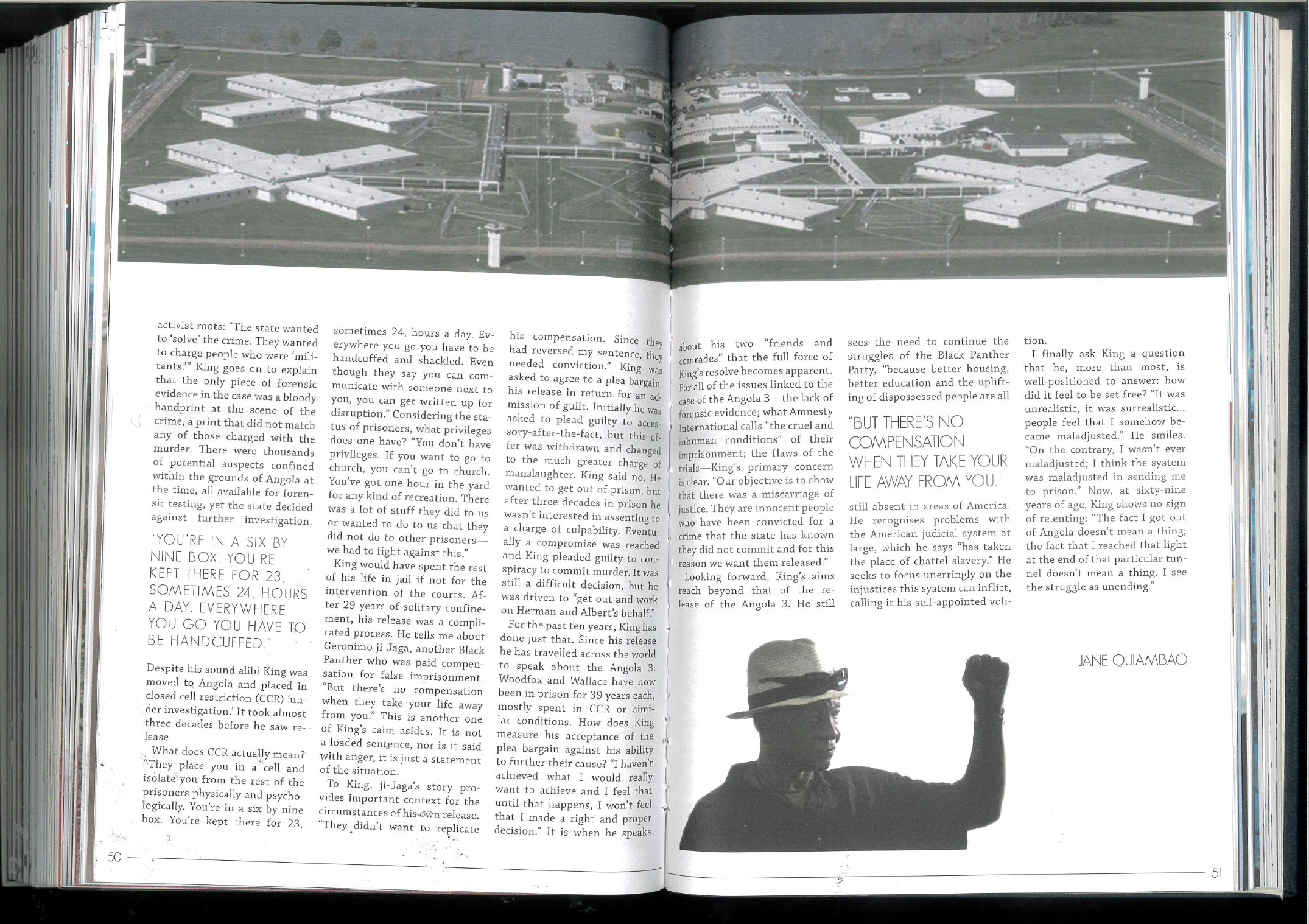
This dive into Isis’s archives was, by no means, exhaustive. There are undoubtedly countless other narratives waiting to be uncovered—stories of Black figures who shaped history, of lives that enriched Oxford’s halls but went unreported. Like so many White spaces, Oxford’s legacy doesn’t easily yield the full story of Black history. Yet these pieces reminded me of how deeply Black expression and, thus, resistance were embedded in student culture, often in non-traditional ways. This journey through the archives wasn’t just a project; it was a labour of love and a testament to the ways Black history has thrived, even when it went uncelebrated.
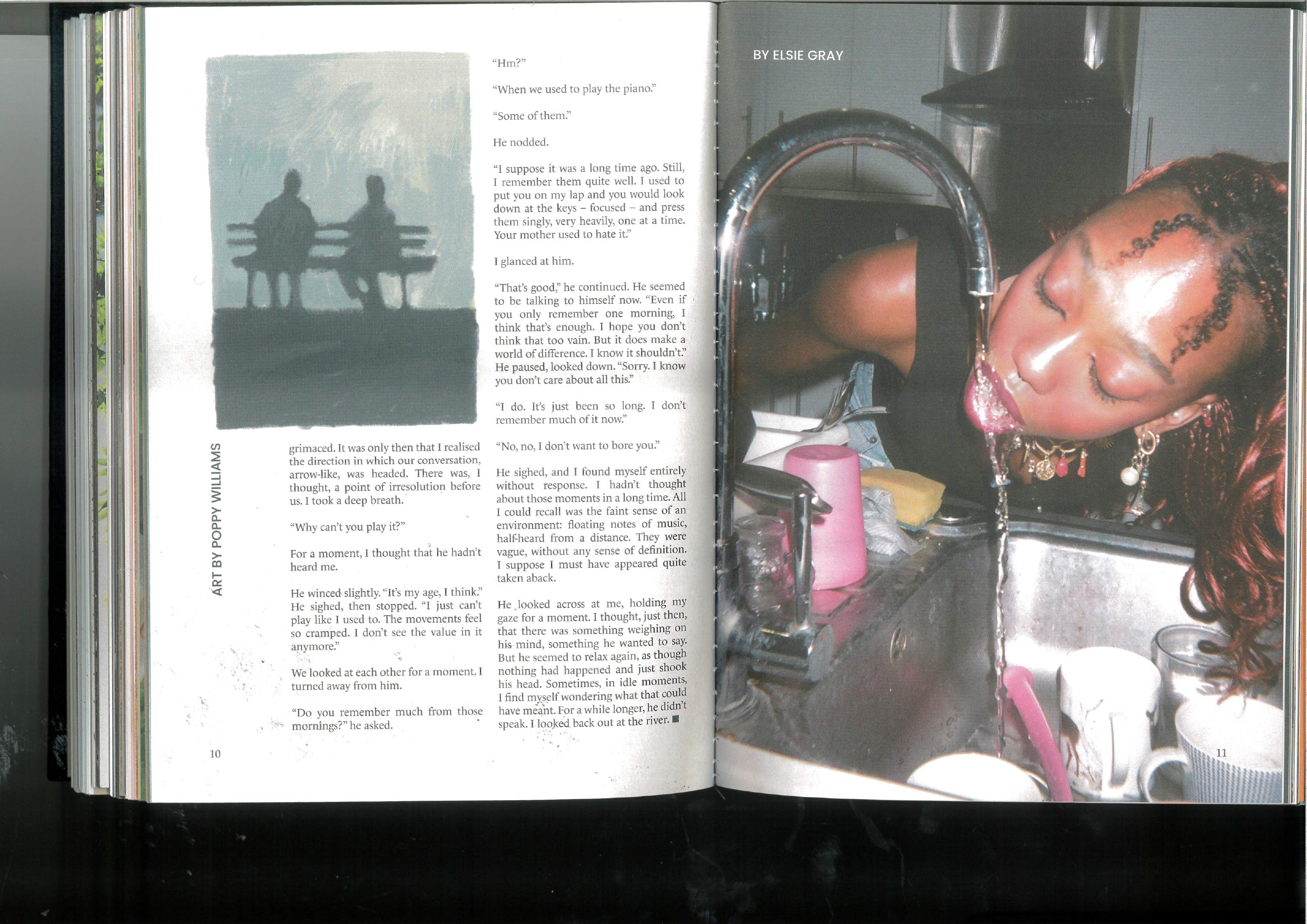
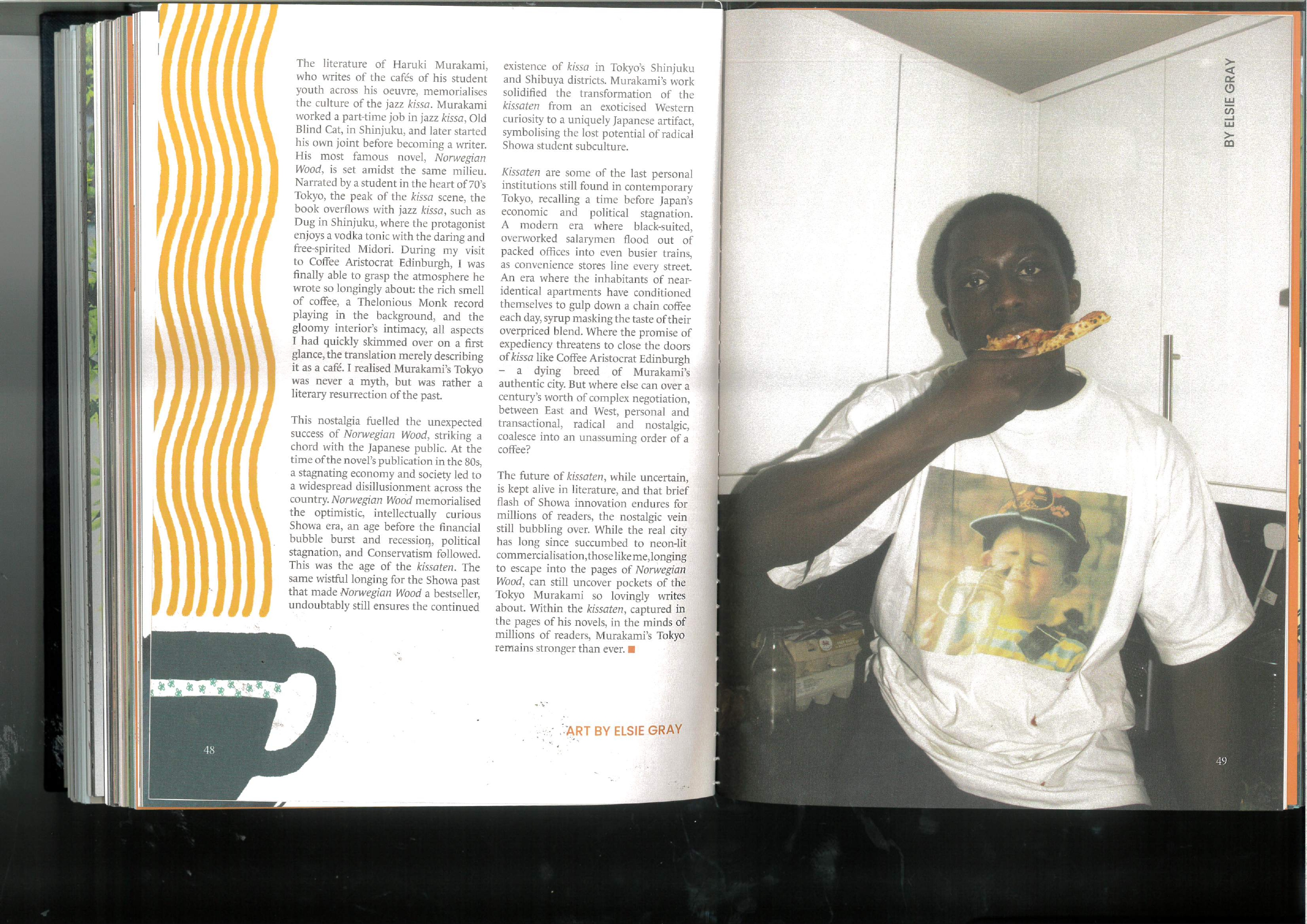
So, happy Black History Month (two weeks late). I’m glad the archives held something to uncover—though they should have held more. And, to risk a familiar phrase, these stories shouldn’t just surface once a year; the Isis should be doing this every month of the year. It has been, as ever, “another dreary year.” The police still need to be policed, the blues are still liberating souls, Black history is unfolding everywhere around us, yet so much still goes unreported. Happy Black History Month. Yes, two weeks late, but still we can, and must, do better. ∎
Words by Lina Osman. Images courtesy of Lina Osman.
